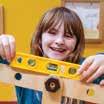




































Presenting Sponsor:
Christine Carter, Ph.D., and Laura Kastner, Ph.D.

April 18, 2023
The Habits of Highly Effective Adolescents

Trauma specialist Laura van Dernoot Lipsky
May 4, 2023
Transforming Trauma and Navigating Overwhelm

Lenore Skenazy
June 6, 2023
Anxious Parents, Anxious Kids: Parenting Advice From the ‘World’s Worst Mom’
Platinum Event Partner:

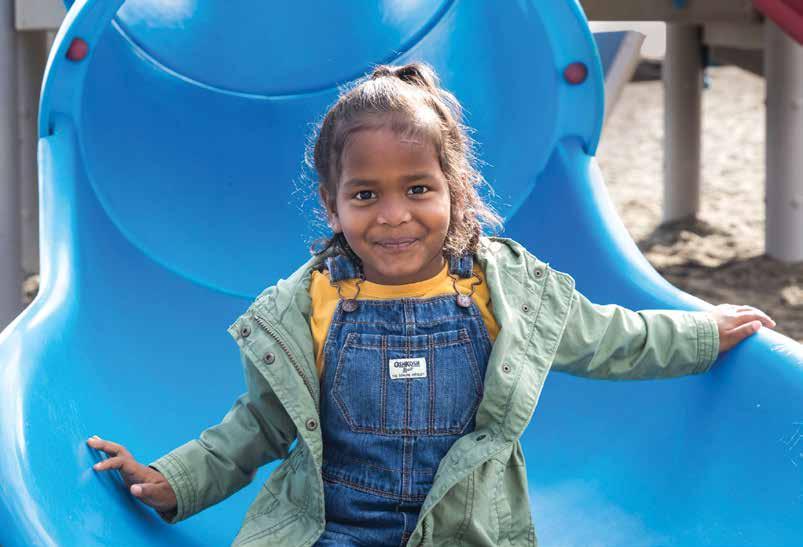
Hug your little ones and head with your friends to:
3121 E. Madison, Suite 102 moms and kids ages 0–14 with curated clothing, shoes and gear.

4/5 | Melissa Benaroya, LICSW, Ask the Parent Coach

4/12 | Chava Mirel, Kids Music Jam
4/20 | Jodie Reinertson, M.D., CosMedic Skincare
4/26 | Shannon Rastetter, BA, RN, IBCLC, Thrive Lactation & Wellness

*Infant/toddler play area available.
*Ask about fundraising opportunities for your school.
The most important skill in talking with anyone, including children, is listening. An expert shares her 12-step approach to being a brilliant listener to your child.








I launched ParentMap two decades ago this month, propelled by an uncompromising vision to create and deliver only the most exceptional and trusted parenting information possible to my fellow PNW parents. In appreciation of this anniversary milestone, I recently sat and reviewed the past 300+ covers of our monthly and annual magazines. I was struck by how many of our monthly features have tackled a wide variety of knotty existential and deeply personal conundrums: From “Does God Matter?” to why are we “Too Tired for Sex?”
Over the course of these deeply rewarding years, our editorial team has plumbed many topics that have addressed and informed our quality and experience of family life — we reflect on some of our favorites on p. 11. But what we also acknowledge is the impetus that connects the majority of our readers (and employees!) to join the ParentMap community in the first place: It is the 500th rainy day of our parenting journey, and we need oxygen! We are just as proud of our commitment to delivering a consistent stream of recommendations for family fun, from city frolics to never-mind-the-weather adventures in our great big PNW backyard.
Being the publisher of ParentMap has not only allowed me to have a career that I have adored, but it has endlessly rewarded me with ongoing education and inspiration in my day-to-day parenting journey. This adjacency to the cusp of parenting intelligence has no doubt assisted me and my husband Bobby in being the best parents we could possibly be to our three children, Arielle (age 36), Eli (age 32) and Maya (age 21). And now, we find ourselves in new and delightful roles as Papa and Bubbie to our two grandbabies, Levi and Stella.
The ParentMap story begins and perpetuates due in largest part to the woman pictured here, one of my personal superheroes, Yaffa Maritz (p. 14). My dear friend Yaffa has been an empathic and energizing supporter of my vision for ParentMap from day one, and her boundless love and deep humanity make her one of our community’s most impactful visionaries and compassionate members. She reminds us all that each of us, in whatever ability or capacity we have, must use our own agency to help to repair this troubled world.
Upon this incredible anniversary milestone, I doff my hat to my family; to my adored ParentMap colleagues; to ParentMap’s exceptional contributors and community partners; to my esteemed past and newly anointed 2023 ParentMap Superheroes. We are all united in our “popcorn to broccoli” mission to inform, delight and uplift our community.
Thank you from the bottom of my heart.
— Alayne Sulkin, publisherAPRIL 2023, VOL. 20, NO. 4
Alayne Sulkin
EDITORIAL
DIRECTOR OF CONTENT +
AUDIENCE ENGAGEMENT
Patty Lindley OUT + ABOUT EDITOR
Nancy Chaney
ASSOCIATE EDITOR
Kari Hanson
CALENDAR EDITOR
Julie Dodobara
COPY EDITOR
Sunny Parsons
CONTRIBUTORS
Nancy Schatz Alton, Will Austin, Nancy Chaney, Diana Cherry, Kari Hanson, Patty Lindley, Laura Markham, Ph.D., Kerrie McLoughlin, Alayne Sulkin, Jenna Vandenberg
DIGITAL MARKETING
EMAIL MARKETING SPECIALIST
Devon Hammer
SOCIAL MEDIA SPECIALIST
Emily Feely
ADVERTISING SALES + PARTNERSHIPS
DIRECTOR OF COMMUNITY
PARTNERSHIPS + ADVERTISING SALES
Jessica Collet
SENIOR ADVERTISING AND PARTNERSHIPS MANAGER
Ida Wicklund
EVENTS + COMMUNITY
PARTNERSHIPS SPECIALIST
Brenna McCown
CLIENT SERVICES + DESIGN COORDINATOR
Angela Goodwin
ADVERTISING CLIENT SERVICES SPECIALIST
Mallory Dehbod
DIGITAL ADVERTISING +
MARKETING SPECIALIST
Taryn Weiner
ART + PRODUCTION
SENIOR DESIGNER
Amy Chinn
ADMINISTRATION
BUSINESS MANAGER
Carolyn Brendel
PARENTMAP EDITORIAL ADVISORY BOARD
Benjamin Danielson, M.D. CLINICAL PROFESSOR, UW SCHOOL OF MEDICINE PRACTICING PHYSICIAN, UW MEDICINE
Joan Duffell RETIRED EXECUTIVE DIRECTOR, COMMITTEE FOR CHILDREN
John Gottman, Ph.D. THE GOTTMAN INSTITUTE PROFESSOR EMERITUS, UNIVERSITY OF WASHINGTON
Laura Kastner, Ph.D.
PSYCHIATRY + BEHAVIORAL SCIENCES, UNIVERSITY OF WASHINGTON
Bea Kelleigh VICE PRESIDENT, DOVETAILING, LLC
Yaffa Maritz, M.A. FOUNDER, LISTENING MOTHERS + COMMUNITY OF MINDFUL PARENTING

Daniel J. Siegel, M.D. EXECUTIVE DIRECTOR, MINDSIGHT INSTITUTE
To turn back time so I could have more time with my mother
Human lie detector
Flight, so I could just zip around, no car
Teleportation
The ability to cheat death
CONTACT
INFORMATION
Advertising information 206-709-9026 or advertising@parentmap.com
Fax 206-709-9031
Calendar submissions
calendar@parentmap.com
Editorial submissions
editor@parentmap.com
Distribution
distribution@parentmap.com
Administration 206-709-9026, parentmap.com
Subscriptions
subscriptions@parentmap.com
Subscription rate 1 year: $12
ParentMap is published monthly. PMB #190, 7683 S.E. 27th St., Mercer Island, WA 98040 All rights reserved; reproduction in whole or part without permission is prohibited. © ParentMap 2023 • printed in Oregon




























April 2 is World Autism Awareness Day. To commemorate the day, your family might consider diving into one of the books below, all of which feature autistic characters. Discover more recommended titles at parentmap.com/autism-awareness.
PICTURE BOOK
‘How to Build a Hug: Temple Grandin and Her Amazing Squeeze Machine’ by Amy Guglielmo and Jacqueline Tourville, illustrated by Giselle Potter

When she was young, autistic animal
behaviorist and author Temple Grandin, Ph.D., noticed that other kids were cheered and comforted by hugs. She wanted to like hugs, but they felt like being “stuffed inside the scratchiest sock.” At her aunt’s ranch, Grandin saw a calf enter a squeeze chute, which cradled the animal, calming it so it could be examined by a vet. That gave her an idea. She got to work making her very own squeeze machine.
MIDDLE-GRADE BOOK
‘Get a Grip, Vivy Cohen!’ by Sarah Kapit

Eleven-year-old Vivy once learned how to throw a knuckleball from World Series pitcher VJ Capello. She’s been practicing for years and now she wants
to play. However, her mom is worried that the stress of the male-dominated sport might be too much for her autistic daughter. The novel unspools in letters written between Vivy and the pitcher Capello, who becomes her pen pal and biggest supporter.

YA TITLE
‘When My Heart Joins the Thousand’ by A.J.



 Steiger
Steiger
Falling in love for the first time throws any teenager off balance. For Alvie, an autistic 17-year-old living by herself, meeting Stanley tips her precariously constructed life nearly over the edge. Stanley, who lives with the genetic affliction osteogenesis imperfecta, is sweet and caring. Alvie is terrified that falling for him will be a huge mistake. ■
— Jenna Vandenberg


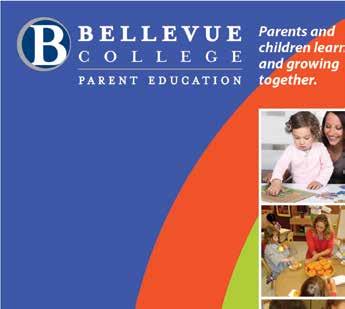
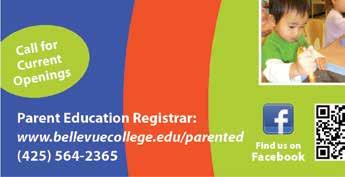
























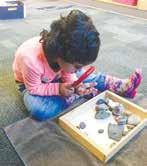





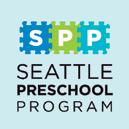

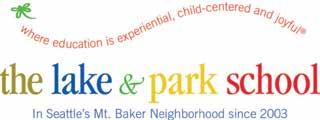
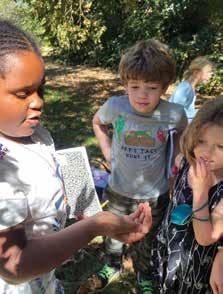
While we’d never play favorites as parents, as editors, it was a joyful exercise to select some of our favorite features and covers from the past 20 years to represent our story — not only the history of ParentMap as a publication, but the zeitgeist and arc of parenting in the PNW. Here’s our “covers story.”
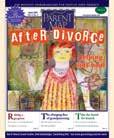
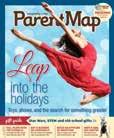
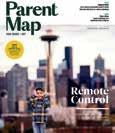 — Alayne Sulkin, publisher and CEO
— Alayne Sulkin, publisher and CEO
High Anxiety (2003): The first issue of ParentMap lands during the high-anxiety first days of the American-led invasion of Iraq.
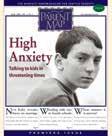
Mothers’ Rights (2007): ParentMap profiles the grassroots advocacy work of MomsRising. (Read what founder Kristin Rowe-Finkbeiner has been up to lately on p. 34.)



Does God Matter? (2009): Several advertisers break their contracts over this headline. If they had bothered to read the article, they would have been relieved to know that God does matter.

Teaching Peace (2006): This feature proposes a proactive parenting playbook for teaching children to build cultures of peace, understanding and inclusion.
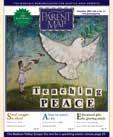
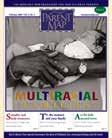

Agent of Change (2008): The Dalai Lama visits Seattle for five days to create a public dialogue about compassion and early learning.
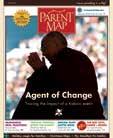
Beyond Pink and Blue (2014): An exploration of the spectrum of gender identity provides resources for parents supporting gendernonconforming children.

Too Tired for Sex? (2009): Sexperts interviewed for this “shocking” cover feature expose the pitfalls of dwindling intimacy in partnership.

The Push for Paid Leave (2016): ParentMap’s 2016 “Making It Work” series pushes beyond tired-out debates about “having it all” to explore big issues and inspiring solutions.

Remote Control (2020): Fall 2020 commences with the dread of continued remote learning and too many pandemic unknowns. We got this (right?).
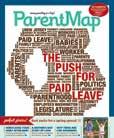



su•per•hero | \’sü-per-hir-(,)o | he-(,)ro \
e
Definition of superhero
: a fictional hero having extraordinary or superhuman powers also : an exceptionally skillful or successful person
ParentMap’s annual “Superheroes” issue shines a light on the dedicated work of leaders in our community who are working tirelessly every day to improve the lives of kids and families in Washington state. In 2023, as the publication celebrates its 20th birthday (and 346th issue!), we recognize anew some of these crusading honorees from past years — and introduce you to their Superheroes. Get ready to be inspired!
On February 6, 2021, Lori and Stephen Markowitz received the single most life-shattering message that any parent could possibly receive: Their precious 27-year-old son Josh (z”l) was the victim of a tragic hit-and-run incident. An impaired driver speeding at more than 100 mph in a 25 mph-per-hour zone struck him down in a crosswalk. Josh sustained a traumatic head injury and passed away a few days later.
The irrefutable fact is that such impaired-driving fatalities, which have become a national crisis, are preventable. The Markowitz family and Washington state Sen. John Lovick are on a mission to end such tragedies.
Lori Markowitz was honored as a ParentMap Superhero in 2015 (parentmap.com/ markowitz), in recognition of her years of work as the executive director of Youth Ambassadors, a program born during the five-day-long Seeds of Compassion conference held in Seattle in 2008. Emphasizing the teachings of the Dalai Lama, the civic education program was designed and evolved to intentionally foster critical thinking skills, compassionate service, and social and emotional learning for local students. This deeply rewarding focus of Markowitz’s life came to an abrupt halt when Josh died, and she has since turned her commitment toward fighting for laws and solutions that ensure that not one more precious life is needlessly taken away.
“I will personally do whatever I can so that I can still be an advocate, even though I live under a tidal wave of sorrow since my Josh was killed,” says Markowitz.

This mama on a mission discovered an empathetic, energetic and fierce champion in Sen. John Lovick for her cause to advocate for laws and measures to prevent traffic injuries and fatalities. As a former state trooper with more than 30 years on the job, Lovick was emotionally devastated by his duty of knocking on the doors of parents to deliver the news that their child had lost their life in a preventable motor vehicle accident.
“We have no time to waste. I don’t want Josh’s life to be in vain.
We can save lives together, and we are not going to forget him,” says Lovick. “These drunk, impaired collisions are preventable. As a community, we stand for what we will tolerate. In 2022, 745 people died on our [Washington state] roads — 370 were DUIrelated. Why don’t we have a portable blow [alcohol monitoring device] before your ignition turns on? Think about it: If an airplane went down and every day we lost two people, we’d do something about it. We need to stop tolerating this.”
Lovick reminds us that citizens have power. “Who is your legislator? Get on the phone right now and call them — and encourage your friends to call. Citizens need to tell them: ‘We’ve had it with the lack of action. When are you guys going to do something?’ I don’t care if people get drunk. Just don’t put others at risk because of your behavior. DUIs are literally killing us.”
“Secretary of Transportation Pete Buttigieg graciously sent me a condolence letter, and in it he wrote, ‘Our goal is this: zero. Zero deaths; a country where one day, nobody has to say goodbye to a loved one because of a traffic crash.’ He is absolutely correct. Vision zero, zero deaths. That’s the target, and I want everyone to understand that this is preventable,” says Markowitz.
Who is the person responsible for connecting you two?
Markowitz: King County Senior Deputy Prosecuting Attorney Amy Freedheim introduced me to Sen. Lovick. She told me that he is an extraordinary Washington state traffic safety champion, and I am forever grateful to her for this connection. When I reached out to him, he made it a priority to meet in person with me and my daughter. I will not forget how he looked us both in the eyes and told us he is going to do whatever he can to improve traffic safety. We knew we found someone who had the empathy, experience and skill to lead policy change. You could feel how deeply he cared about the families tragically impacted by traffic violence. Sen. Lovick is a leader with heart.
Have there been other partners along the way who have helped accelerate your efforts?
Lovick: Some of my best partners are other law enforcement organizations as well as orgs like Mothers Against Drunk Drivers [madd.org]. The way we advance traffic safety is by talking and
listening to each other. We need to realize that everybody matters, every life matters.
Markowitz: There are many extraordinary people I’ve met who are dedicated to traffic safety issues. Shelly Baldwin, the amazing director of the Washington Traffic Safety Commission [wtsc.wa.gov], gave me the confidence to join the executive board of the Washington Impaired Driving Advisory Council, which supports the Washington Traffic Safety Commission.
Who is your personal hero and why?
Markowitz: My hero is no doubt my beloved son, Josh. He was an exceptional person, beautiful inside and out. He lost his life at age 27, but did more for the world than most because he was authentic, deep, generous and kind beyond words. And my beautiful daughter, Jessica, who each and every day is doing what she can to honor her big brother.
Lovick: My grandmother Elsie Lee Lovick. She was the granddaughter of a Louisiana slave, and she paid a dear price for the privileges I have now.
What do you hope people will understand about this work?
Lovick: I want people to understand that public service is joy. I was a state trooper for 31 years. I loved going to work, but many days I hated being at work. I ran for office because I was tired of sitting back complaining. I knew if I served in office that I could do something about it, more than just talk.
Markowitz: I wish people would pay attention to the urgency of the current situation. It is a human right to travel safely if you are in a car, walking, cycling, taking a bus, train, plane, etc.
What is one action that our readers could take that will advance your work in traffic safety?
Lovick: The No. 1 thing I would tell new drivers is that we should get a pledge from them to always consider their safety and the safety of others, and that they will never, ever use an electronic device while driving.
Markowitz: Younger drivers are statistically impacted more than any others. It’s critical to ensure they understand the impact of driving under the influence of any substances. A car can be a dangerous weapon if not used properly, just like a gun. Parents need to set a good example with everything in life, but their driving habits are also a way to exemplify how to be a responsible driver.
If you could have a superpower, what would it be?
Lovick: To end hatred and racism.

Markowitz: My superpower would be to allow all young people to have a chance to live a full life.
How would you encourage ParentMap readers to take action?
Lovick: Tell your story. We need to hear stories. My favorite line is “Numbers tell, but stories sell.” We need to hear the stories of what’s happening in our communities.
Markowitz: Call your legislators and ask them to support traffic safety policies. Change starts with recognizing the problem. We have to get back to taking care of each other. There’s a highstakes role and responsibility for us to play as drivers — and the price of our inaction is unbearable. This rising aggression on our roadways is robbing us of the people we love.
How has your family created a place in perpetuity for Josh’s spirit to live on?
Markowitz: We established The Josh Fund [thejoshfund.com] to keep his musical legacy alive by facilitating and supporting access and opportunity to the world of music for aspiring musicians. The foundation is providing financial support in the form of scholarships to qualified students pursuing a bachelor’s degree and entering the final years of study at the University of the Witwatersrand in Johannesburg, South Africa. ■
— Alayne SulkinDavid
Yaffa Maritz,

A 2008 ParentMap Superhero nominee (parentmap.com/maritz), Yaffa Maritz says the experience of getting to know Carter and Heppard has changed her life.
“The power of community is what really drew me. I saw the communities that they built around them based on compassion, and how when they come out, they’re really held in community in such a beautiful way through these organizations they built for themselves,” says Maritz.
“When we talk about resources, it’s not about handouts: They want to be empowered to bring their brilliance and potential. They just need access. I nominated these two because they are amazing. David has been out for four years and has helped the Freedom Project grow from a staff of four people to 27 people. Kimonti just got out and is already doing brilliant things. So, it shows what can be accomplished when you just provide access.”
Kimonti Carter and David Heppard are two men with a shared past and a shared mission. The pair grew up in the same community in South Seattle and have known each other for more than 30 years. Both were sentenced to life in prison as teenagers and have now been released from prison with help from advocates at the Black Prisoners’ Caucus (BPC; blackprisonerscaucus.org), an organization founded in 1982 and run by incarcerated and formerly incarcerated individuals in Washington state. Heppard was released in 2017, and Carter in 2022, with Heppard working with a team at BPC to help secure his friend’s release.
Carter is the founder of T.E.A.C.H. (Taking Education and Creating History), a prisoner-led higher education program designed by the BPC to transform incarcerated men into college-educated students. His story is the focus of the inspiring award-winning documentary “Since I Been Down,” by filmmaker Gilda Sheppard (sinceibeendown.com). Heppard is the executive director of Washington’s Freedom Project (freedomprojectwa.org), an organization working to dismantle the poverty-to-prison pipeline. Both are leaders in the Black Prisoners’ Caucus.
During our interview, Heppard shared one of his favorite quotes, credited to Indigenous Australian activist, academic and artist Lilla Watson: “If you have come here to help me, you are wasting your time. But if you have come because your liberation is bound up with mine, then let us work together.”
The quote perfectly represents the importance of solidarity among people
with vastly different life experiences and struggles. It’s fitting, given the two were nominated by fellow ParentMap Superhero Yaffa Maritz (parentmap.com/maritz), who is the cofounder of Listening Mothers and clinical director of both Listening Mothers and Reflective Parenting. Both of these research-based parenting programs focus on mindfulness and community support, and are facilitated through the organization she founded, Community of Mindful Parenting (communityofmindfulparenting.com).
At first glance, the three might not seem to have much in common. But Maritz, like Carter and Heppard, believes this work is rooted in community, and in supporting the most vulnerable families and children in our midst. Maritz met Carter when she agreed to help fund friend Gilda Sheppard’s documentary about Carter. Encouraged by Sheppard, Maritz visited Carter in prison, and eventually taught a version of her mindfulness course at the facility where he was incarcerated. She met Heppard when she attended a training he offered on anti-racism. He later took her mindfulness course, with the aim of incorporating aspects of it in his own training courses offered through the Freedom Project.
“The work I do is to bring healing to those spaces where people are impacted by mass incarceration.”
— Kimonti Carter
What do you wish people understood about your work?
Carter: That lives are valuable and there are a lot of people in prison who don’t deserve to be there. Prison is slavery, to be clear. And we justify it because of a person’s actions. But what that does to a person’s well-being, spirit and mental health? I think it’s dangerous. So, the work I do is to bring healing to those spaces where people are impacted by mass incarceration. I want them to be able to see and understand their worth. What other people would call “reentry.”
Heppard: Mass incarceration has decimated our community. I know it is framed from society’s perspective that people made mistakes and so they have to pay for their actions. But that framing doesn’t take into consideration poverty or racism. It’s built solely on the premise that you did wrong, regardless of the systems of oppression that put you in that place.
What motivates you most in your life and work?
Carter: When we look around in prison amongst our demographic, we see a bunch of young boys. They’ve been thrown into the system and now the system is telling them they don’t have access to education. So, how are they supposed to be prepared to get back into community?
I am motivated by being able to see the impossible become possible. Being able to see the will of destruction not be able to be held up, and then ultimately be replaced with something that’s healthier and more productive. I’ve been able to see change. I’ve been able to see the tides turn, and I’ve been able to feel the evolution of my own spirit, my own heart — as well as those of others.
Heppard: When I was 16, I got thrown away. And I didn’t just get thrown away figuratively, but literally. I remember what the judge said to me. This 16-year-old child. He told me that I was what was wrong with society and that I don’t belong in society. I remember that — what it did to
me emotionally. I was a child! I remember that feeling of being thrown away. I don’t think anybody should feel that way.
What is one small action ParentMap readers can take in their own lives to make positive change happen?
Carter: The way that you solve these problems is through relationships, not transactions. It’s easy to write a check. And, don’t get me wrong, any of these organizations will willingly accept your donations, but they need your time. Get close to the issue. In order for you to feel the warmth and the breath of these people who are impacted. I promise you, it will change your life.
Heppard: They can do their internal work. That’s going to have the biggest impact. I’m talking about anti-oppression, equity work. When you do your internal work, your healing work, I believe that allows you to show up authentically. Everything becomes better: the way you vote, the way you hire, the way you rent, the way you loan, the way you treat other folks in a space, the
things you support. I know folks want me to say, “Go to this website, or do this or that,” but it’s not that simple. It’s deeper than that. Do your work.
If you could destroy one myth, what would it be?
Carter: That punishment is a deterrent.
Heppard: The “violent offender” myth. When they say “violent offender,” what they really mean is somebody Black or Brown. First, for those who do something deemed violent, the recidivism rate is super low. It’s the opposite of what people think. There are lots of programs that won’t support someone who has done something violent. But folks who do come back into the system come back with a crime of poverty, and that’s because they have all of these barriers to getting support. Most programs won’t help them because the idea is that because you did something violent, you are violent. But it’s not true. ■
 — Diana Cherry
— Diana Cherry

Pediatricians Abena Knight and Michelle Terry are colleagues who work alongside one another in Seattle Children’s Division of Hospital Medicine, taking care of kids who are hospitalized for a variety of illnesses. They both also work as clinical professors at the University of Washington School of Medicine, where Knight serves as the associate vice chair of education for the Department of Pediatrics, and Terry serves as the assistant dean for the Underrepresented in Medicine and Science Career Development program. They both have the best infectious laughs. So, you could say that these two already have a lot in common. But wait until you hear their professional “meet cute” story.
Terry recounts their conversation from when they first introduced themselves during Knight’s medical residency. “I said, ‘Abena, where are you joining us from?’ And she said, ‘I’m joining you from Baylor College of Medicine.’ And I said, ‘Oh, I went to Baylor College of Medicine. Where’d you go to college?’ And she said, ‘I went to Stanford University.’ And I said, ‘Oh, I went to Stanford University. What is your hometown?’ And she said, ‘My hometown is Houston, Texas.’ I said, ‘Oh, my hometown is Houston, Texas!’ And fast forward, she completed her residency in pediatrics and joined the Division of Hospital Medicine. And now we get to work together!”
Terry, who was honored in the inaugural cohort of ParentMap Superheroes back in 2008, says of
colleague and friend Knight, “She’s amazing in multiple domains. She leads our educational program at the University of Washington Department of Pediatrics and she leads our clinical operations within the Division of Hospital Medicine. She’s an excellent physician. She provides outstanding clinical care to our patients. So, given that and all of the things that we have in common, I just really feel close to Abena and wanted her to share this honor.”
Dr. Knight, what motivated you to become a pediatrician?
Knight: I was diagnosed with lupus at the age of 10. I was quite ill and spent a lot of time at the children’s hospital in Houston. My doctors were wonderful, but my parents had great distrust, which was understandable given their backgrounds, and [that lack of connection with] our medical team really affected my care over a period of time, because we were that family that was super difficult and noncompliant. I watched my family navigate this relationship with the medical team, as we learned to trust and they learned to understand why we would not trust them immediately. I started to wonder about what things would’ve been like if there was a physician or provider who looked like my family or had a similar experience to my family — would that have made a difference?
This led me to think maybe that could be me for the
next set of families encountering our health-care system and feeling that sense of distrust. That was what really started my interest. It’s really kind of cool that I’m now in that hospital setting, which is a very stressful place to be for families, even if they’re there for something routine. For some families, it’s really the worst day of their life. So, being able to navigate relationships with families and to teach people how to navigate those relationships with families based on my experiences has been really humbling.
I occasionally have patients who come in presenting a constellation of symptoms and they eventually get diagnosed with lupus. I had one particular minoritizedbackground family with a young daughter and they were really struggling to make that connection with the team. While I didn’t presume that their experience was similar to mine, I could empathize in a way and was able to pick up on cues that maybe there were deeper questions. Their ultimate fear was not knowing if their child would have a future. So, I opted to disclose my history, and I think it was just so important for the family to have hope in that moment, because they were really not hopeful.
I was able to say, “I was super sick and I struggled, but I did what I was supposed to do and followed up on my doctors’ orders. I was one of the lucky ones who went into remission and I’ve been very healthy since. And now I’m a doctor. Know this is not a life sentence, this is a condition, this is one part of your child’s identity, and they have the opportunity to do so much more than be their disease.”
Dr. Terry, what motivates you in your day-to-day work?
Terry: My biggest motivation is knowing the potential in every child, knowing that kids get better and that parents do everything in their power to make sure that their kids get better.

What’s your worst habit?
Terry: I would say it’s challenging for me to be early, even on time, meaning I try to do one more thing, reply to just one more email, answer one more phone call, you know, put in that load of laundry. I just can’t stop and plan for the next thing.
Knight: Probably that I talk too much. I bother people when they want to just relax and be quiet. You could say that sometimes I don’t read the room well.
How have you seen pediatrics change over the past decade?
Terry: I’d say that pediatricians are managing a lot more behavioral health and mental health in primary care practices and in the hospital. I don’t ever recall seeing kids in psychiatric crisis when I was training all those years ago. And now it’s kind of an expectation that we manage social, emotional and behavioral diagnoses while the patients are in the hospital.
If you could wave a magic wand to fix something in the world, what would it be?
Knight: For me, inequitable access underlies a lot of what we see. It affects access. I think about money, I think about food, I think about health. I think about opportunities, and so, for me, it would be fixing the inequity of what people can actually have in order to realize their fullest potential.
Terry: Opportunity, having more of an open society where people can pursue their heart’s desire in terms of education, job prospects — without worrying that if they
lose their job, they’re going to lose their health insurance, or if they choose to change their major, they’re going to be in a lot of debt. I don’t think we’ve adequately invested in education and health care like we did in previous generations.
What is one small piece of advice you would give to our readers to encourage their journey of raising kids?
Terry: Now that I’ve raised three children to young adulthood, I think the most important thing is to encourage them. You have to be supportive of almost everything that they say and do. You want to encourage their dreams. You want to encourage their studies, you want to encourage their friendships, you want to encourage their abilities. And if you do, they will develop that self-confidence to pursue what’s right for them.
Knight: I’m a bonus mom, so I came in as an additional parent. I think nurturing your child’s strengths is super important. They each have their own incredible strength. So, help them discover what that strength may be and support them in developing that particular talent with all you’ve got.
What is the one-word touchstone that guides you in your work?
Knight: Empathy. Everybody has their own experience, and it’s really important to not center everything on yourself.
Terry: Perspective. Almost every day I learn something new by looking at it through someone else’s point of view. ■
— Patty Lindley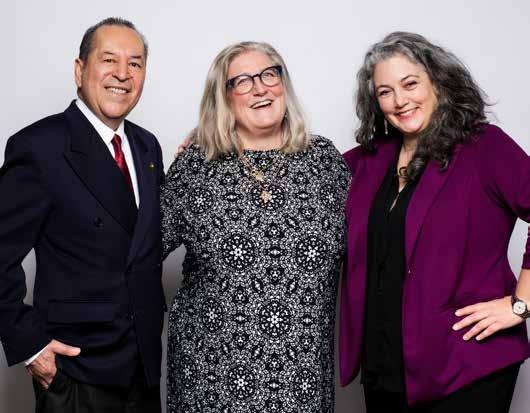
Hinojos and Jiménez founded the organization in East King County because they saw a need for their community to have a safe and inclusive space where people could not only access services and programs, but also forge community connection through art and culture. The cofounders agree that art and culture programming is the best tool for connection because it allows people to open themselves up to conversation and discovery. “That’s where we can get to the heart and soul of who we are as a people, and then we can engage deeply with them,” says Jiménez.
A typical week at Centro Cultural Mexicano includes a variety of activities. During one week in March, for example, the center hosted a workshop for 40 small-business owners; worked with youths to develop leadership skills; met with community members who stopped in for free tax preparation help; there were two meetups for art groups; and the team fielded a variety of community needs, ranging from immigration topics to housing concerns.
Putter Bert, president and CEO of Bellevue’s beloved KidsQuest Children’s Museum (kidsquestmuseum.org) and a 2020 ParentMap Superhero (parentmap.com/bert), bestows the superhero title upon two people who are helping to create a quilt of community on the Eastside: Angie Hinojos and Carlos Jiménez, cofounders of Redmondbased Centro Cultural Mexicano (centroculturalmexicano.org).
“I nominated them because I think what they do for the community and where and how they show up is remarkable,” says Bert. “During the pandemic, it was clear to me that they opened their arms wider to
help people in all communities. I haven’t known them very long, and I want to be in their space,” says Bert.”
Hinojos and Jiménez created a physical space when they opened the Centro Cultural Mexicano in November 2018.
“Our goal is empowerment of our communities. We look at that in a lot of different ways: through education supports, providing assistance for small businesses to help them gain financial stability, creating programs to help build intergenerational wealth and expanding leadership opportunities in our communities so we have representation at all levels of society,” says Hinojos.
“On Valentine’s Day, we had an art opening with live music and food. At events like this, we also introduce people to our services,” says Hinojos. “While we are dancing and eating, we are also sharing. We want people to get to know all about our different programs and services in a comfortable way that also uplifts our community and culture. We can offer assistance to people with respect and love.”
Jiménez adds that it is most important to them that they listen to their community with understanding and compassion: “Coming together to enjoy music, food and arts builds connection and trust within the community.”
Who is your personal hero?
Hinojos: My parents, who always encouraged my brothers and me to question everything and come to our own conclusions. For our Latino community, there are so many inequities that exist in our systems and institutions. If we don’t question everything and come up with solutions, then we are not going to be able to change those inequities.
Jiménez: My grandmother. She raised me since I was 3 months old. She was a really strong woman, a single mother of six. She guided every one of my uncles to be a good individual. She taught me that no question is a bad question, don’t look down on anybody, help lift others up, and always have your head up and be proud of who you are. Also, never forget where you came from.
What do you wish people understood about your work?
Jiménez: I really don’t expect people to understand the work that we do. We carry the mission upon ourselves. We are the ones who need to understand every single person who walks through our doors, and we have a responsibility to create a safe place where people can interact and learn.
Hinojos: I want people to understand that our work takes trust, and this trust is sacred and a deep expression of human connection. We’re trying to build a bigger vision for our communities.
What daily habit or small routine is most important to you?
Hinojos: We always take a minute in the morning to talk about the bigger issues that are facing us. We meet over coffee early, before the doors are open. That’s when we really let our thinking expand. [This routine] gives context to the smaller tasks that we do every day.
Jiménez: We share the vision for the day. We always know the day is not long enough — 12 hours or 16 hours — but we always try to accomplish what we set out to do for that day.
How do you measure progress in your work?
Hinojos: The greatest measure is when we have community members or people who run small businesses come back and we see them thriving. They may stop coming because they got what they needed. And then a year later, they come back and they’re thriving. That’s a great feeling. It’s an ecosystem: We try to build community bonds that become our collective strength.
Jiménez: Some of them come by and give a sincere thank-you, and that gives you the strength to get through the day.
What’s your best advice for today’s parents?
Hinojos: Above all, love your kids, because that gives them confidence. When a child feels love from a parent, it becomes part of how that child views themselves.
Jiménez: Being a parent is one of the most beautiful things that can happen to a human. This generation is going through a lot of changes, hurdles and hard times. Just listen to your children and pay attention.
If you could dine with anyone, living or dead, whom would that be and why?
Hinojos: My dad. Life is long but it feels short sometimes, and we never have enough time with those we love.
Jiménez: My grandmother, so I could have the longest conversation with her.
What’s your favorite read of the last year? Hinojos: My son is in college, and he just read “Knulp” by Hermann Hesse. I just love this book, and we had the most beautiful conversation about it. When I read this book for the first time, I had a similar conversation with my dad, and it reminded me that we pass onto others what we carry with us.
Jiménez: I have been thinking lately about a book I read by Sor Juana Inés de la Cruz. She is a Mexican hero who wrote about the equality of women and how strong women can be when they raise their voices. ■
— Nancy Schatz AltonParentMap honored Putter Bert, president and CEO of KidsQuest Children’s Museum, as a Superhero right as the coronavirus pandemic made its conspicuous arrival in our backyard. We caught up with her to hear how the work of the museum has evolved as a result.

How has the museum pivoted to support the community these past few years?
Like everyone else, we started with online programming. We quickly realized people needed to touch stuff. So, we created activity boxes that we both sold and gave away. Then we packaged up a lot of our exhibits, like the fruits and vegetables from our market exhibit, to loan to families and child-care providers so people could play market.
What do you credit for the success of your efforts to deliver programs and connection during the pandemic?
My incredible team — they are the most caring people I know — did what we needed to do for the community.
What are you focusing on now in your work at the museum?
Now, we have a lot of money to raise to pay for all of the things we did during the pandemic. We are stronger, smarter. I don’t know what is around the next corner, but I am working hard to prepare the museum for what comes next.

In 2011, ParentMap awarded Superhero stripes to United States Navy veteran Mike Schindler, founder and CEO of Operation Military Family (operationmilitaryfamily.com), an Edmonds-based organization that operates with a mission to “provide proven pathways for veterans to discover and deploy their greatest gifts in family, work and life.” He is known throughout the country as an expert on leadership development, government relations and veteran transition issues. This year, Schindler bestows Superhero honors on Nino Gray Jr., community engagement manager for the Seattle Seahawks, and Carla Carrell, a senior director at Comcast, for stewarding their respective organizations’ efforts to support and connect with the military community of veterans and their families.
Nino, how did you and Mike become partners?
Nino Gray: The veteran world is big, but in some ways, it is small. I cover the military in my work with the Seahawks, so my goal was to create a group of organizations that help out veterans. Operation Military Family was one of them. I connected with Mike, and through what started off as just a joint venture to help veterans, we ended up
being best friends and brothers. We really look out for each other.
What is your personal connection with this work?
Gray: I was 10 years in the Army infantry, did deployments to Iraq and Afghanistan. On Sept. 24, 2010, I was leading my squad out when we got hit by a 400-pound IED [improvised explosive device], which for me resulted in a brain injury. I also got two metal plates in my leg, with 18 pins. I woke up at Walter Reed about three weeks later. I was given a backpack from the Wounded Warrior Project [woundedwarriorproject.org]. Just knowing I was getting out and what that backpack did for me, I wanted to be able to pass that same spirit on to other veterans who were in the same boat. So, here we are.
Describe your work with the local military community.
Gray: I cover all military first responders and our Make-A-Wish activations. Mike and I started Task Force 12, which is a partnership of the Seattle Seahawks and 12 local veteran nonprofit organizations that provides life-changing support to military families. Mike and I understand that not every veteran or military family is the same. No one person or organization could take care of all of those needs. Lining up 12 different grassroots military organizations with the same purpose makes our mission a lot easier to attain.
Mike Schindler: What I love about Task Force 12 is its common resolution. How we accomplish that purpose is different, but we all go into it fully equipped to depend on each other in the same mission to help
support that veteran and their family.
Gray: We’ve all felt that pain of needing support in service. So, just to be able to tap into those emotions to help our community is what I think makes us so strong.
Carla, can you share a bit about Comcast’s initiatives in support of military families?
Carla Carrell: I am the lead of the Internet Essentials program, which provides affordable internet, and you get access to a subsidized laptop, you get access to digital skills and programs. So, you get connection, a device, and then you can learn how to use it. If you don’t have those three things, you’re not ever really fully participating in the digital economy.
Schindler: Veterans might have a smartphone, but one of the biggest issues they have when they’re trying to apply for benefits is that they don’t have a laptop, or maybe they have a laptop that’s dated or maybe they have a government-issued laptop that doesn’t let them connect to anything. When I met Carla, she said, “Well, we’ve got 20 laptops!” We started small, by identifying people who needed the help bridging that digital divide. Those laptops really become a vehicle for so much more.
Carrell: We launched the Internet Essentials program in 2011, so it’s been around for over a decade. But what really changed the trajectory of this work was the pandemic. What was evident was that folks didn’t know the program existed. And then when children went to remote learning at home, it was a crisis. I’m a parent, so I took it really personally. We
all know that those most impacted were the children of families who couldn’t afford an internet connection. So, I worked with the Office of Superintendent of Public Instruction at the state level. We supported over a hundred school districts that have students who qualified for free and reduced lunch to give [those children] a free internet connection.
Comcast has had a long-term commitment to military engagement, through hiring vets and by creating experiences and services for military customers and communities. Here in the Pacific Northwest area, we have eight employee resource groups, and one of them is our VetNet group. It’s really about supporting our veteran peers and provides a way for folks who want to be an ally for our veteran teammates to engage.
When Mike and I met during the pandemic, I leaned in and said, “Mike, I know we can help to do more to expand digital capacity for the military community.” Sometimes [the best way] to make an impact is to go to the trusted expert in the community and then ask them to guide you. Ultimately, my goal was to give Mike whatever he needed. The pandemic underscored how critical partnerships are and that we are all in this together.
Schindler: Well, that’s what you need, you know, beans, Band-Aids and bullets, right? If you’ve got the troops out there, you got to find somebody who has got supply.
The Seahawks supply is not just an experience. What I think oftentimes people forget about professional athletes is that in many ways they’re like service members. There’s that common bond there. Veterans who maybe thought they could never afford to go to a professional football game get to go. Then they get connected to other resources, and they realize, “Wow, this big organization really cares.” I nominated Nino because he goes out there and he hustles. He makes things happen, with a servant leadership attitude.
And then you’ve got Comcast NBCUniversal coming in and giving veterans the tools
they need to get connected. I nominated Carla because she jumped through hoops for me; she’s eliminated a lot of excuses, and that, for me, is really important in the veteran community. These two are exceptional people, and that’s why I say [these organizations] really bring the humanness back into humanity.
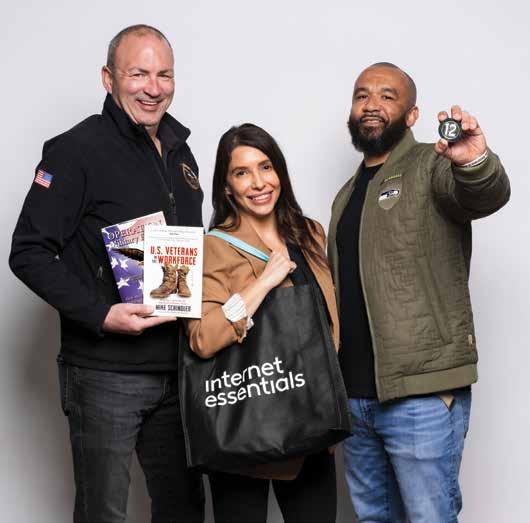
What motivates you to do the work that you do?
Gray: Twenty-two veterans commit suicide every day. We have more veterans dying here locally than we had casualties overseas. As veterans, I think we kind of hold that to our chest when we go out there and serve. I think that’s what keeps me going.
Carrell: I get to do a job that connects people to something as critical as the internet. I get to make sure that they know
how to use it to be participative in the digital economy. That is very personally rewarding to me.
What advice do you have for ParentMap readers about raising kids today?
Gray: Give yourself grace. You are not going to have all the answers. Just learn as you go.
Carrell: You nailed it. Also know that it takes a village. We talked a lot about partnerships here, and I will tell you, leverage relationships, partnerships, family, friends, the community of help that you build as a parent.
Schindler: I’d say that, as a parent in this generation, my advice is if you say it, then do it. I think our kids need us to be that guiding light. ■
— Patty Lindley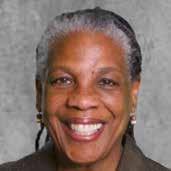 Trish Millines-Dziko, cofounder and executive director, Technology Access Foundation
Trish Millines-Dziko, cofounder and executive director, Technology Access Foundation
Trish Millines-Dziko cofounded the Technology Access Foundation (TAF; techaccess.org) in 1996 with the vision of teaching children of color the information technology skills that would enable them to go on to college. TAF does this by building collaborative partnerships within public education to expand access to transformative learning pathways as well as broaden opportunities for students and teachers of color that eliminate racebased disparities. Millines-Dziko would tell you that our current education system is broken and TAF’s mission is to fix it, to create educational justice.
Millines-Dziko was first honored as a ParentMap Superhero for her work at TAF in 2008. Since then, the organization has evolved its STEMbyTAF model to fully transform public schools and improve teacher diversity and the retention of teachers of color in Washington state. Millines-Dziko nominates her longtime TAF colleague Sherry Williams, executive director of operations, as a ParentMap Superhero for 2023.
Why did you nominate Sherry as a superhero for Washington state families?
Trish Millines-Dziko: Sherry is really the other half of TAF. Everything that we are as a culture is Sherry. We’ve known each other almost 30 years. She’s been with TAF
since it was 4 months old. She’s a great person, and people should know her.
How would you describe the TAF culture? Sherry Williams: So, it’s people-first: First it’s our kids, but in order to take care of the kids, we have to take care of each other. And so how do we do that? We treat each other as human beings, with love and care and thoughtfulness. And then we work hard together. When times get tough, we know that we care about each other and that we will make it through.
Millines-Dziko: A lot of times, we’ll get younger people coming to work at TAF, and I always say, “I’m not the person who is going to develop you. You need to go to Sherry.” If you have a plan, I can go over the plan with you. But if you’re starting from scratch or you’ve got some deeper things to work on, go to Sherry. She’s the one.
What do you envision for TAF in the next few years?
Williams: Serving more babies and teachers. Expanding TAF outside of Washington state is really what I want to see, because there’s a need, not just here, but all over the nation, for students of color and teachers of color. So, I want to spread the STEMbyTAF model.
What does the organization need in order to expand?
Williams: Money. And more talented people who get the passion of TAF and want to come work here and do the hard work. That’s what we really need.
Where do you find talented teammates? Williams: A mix of places, but a lot of times
it is through word of mouth, because we’re really looking for the right person. Not just anyone with the technical skills — they have to have passion.
Millines-Dziko: Working at TAF is about more than being an educator — it’s a movement. We’re in a movement right now, and you have to “know your why.” That’s what Sherry’s talking about when she says passion. Because when the gatekeepers
come and all of the barriers go up — which they do on a regular basis — if you don’t know why you’re there, you’re going to leave. This work is not even close to easy, because we’re working with adult human beings to impact young people.
Who are your partners in this work?
Millines-Dziko: I would say our current district partners are the ones that really got us launched in this work. And we want more district partners. We have 13 university partners to help us with the teachers of color. We want more of them.
Of course, we have corporate partners who fund us. And there are some foundations that consider us to be partners, not just grantees. I would consider anybody who is willing to sit down
Why do you need trick questions?
We’re trying to help kids learn. We’re not trying to put them through a gauntlet!
and do the work with us and evolve with us as a partner.
We have a number of really good corporate partners that support our work: Costco, Comcast, Amazon, Alaska Airlines, Google, Microsoft. ...
Pre-COVID, we averaged about 250–300 volunteers a year, and a lot of them came from the ranks of our corporate partners. Then COVID came, and that number went down, but they still volunteered online, which was good. We got this whole new set of people to volunteer because of that. Now, we’re back in person and it’s picking up.
How many people would you say have been served by TAF?
Millines-Dziko: For those first 10 years, we educated more than 500 teenagers, and then about probably another 400 or 500 K–8 kids through our program.
But we changed, because what was happening with our teenagers is, while they were getting technical internships and doing great, they were tracked in the wrong math and science tracks at high school. So, when they got into college, they couldn’t take their computer science or engineering classes right away. They had to take remedial math classes. And that’s when we said, “Okay, we’ve got to fix this.”
We created our own academic model with the support of educators and opened up TAF Academy in 2008 with Federal Way. We’ve just been going since then.
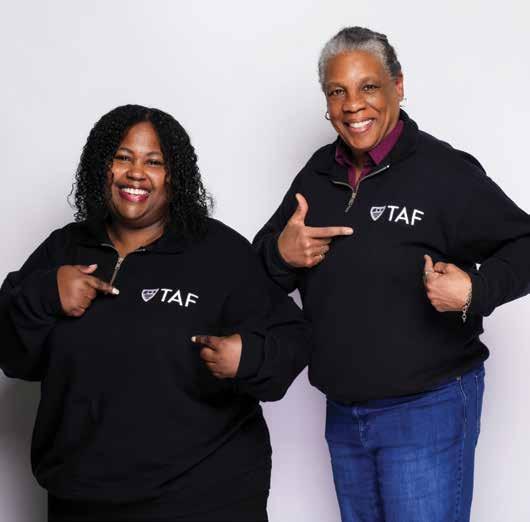
Williams: We have eight school partners now and we’re trying to grow more. COVID kind of stopped us in our tracks. Our goal was three new schools per year. We opened two schools the year of COVID. So, we gotta get back on track.
Millines-Dziko: Right now, if you look at the numbers, we’re impacting about 3,000 kids a year. Then, a tertiary impact is through our teachers of color. And that’s another 15,000 or more per year.
How is the TAF model designed to help kids and teachers?
Millines-Dziko: We don’t provide curriculum. What we do is help teachers deliver STEM curriculum better. And when it comes to assessing kids, we help them do it in a more authentic way. The problem with the state test is that it is timed, number one; it’s in one span of time and is based on the expectation that every teacher you ever had delivered all of the content for all of the standards — and that you retained all of it. And now, boom! It’s too much.
But the problem is, when parents see high test scores, they think it’s a good school. So, then you have all the people who have money and means who don’t want to pay for private school. They go to the school that has the best test scores. But guess what? Their kids aren’t getting any better of an education than the kids who
have lower test scores. It’s just that they happen to pass these tests. And many of the parents pay to have their kids trained on how to take the test. There are trick questions on the test. Why do you need trick questions? We’re trying to help kids learn. We’re not trying to put them through a gauntlet!
We work with our teachers to do authentic assessments, but the teachers don’t work for us. They work for the district. And the district says what the state says, which is that the kids have to pass the test. So, our teachers are kind of torn. We want to propose a way to do authentic assessments that everybody can do, have it be consistent, have it be objective. We’re trying to build a system like that. ■
— Patty LindleySuperheroes continued on page 32

For children and their caregivers, trust and respect are essential for a strong, healthy relationship. From the day a baby is born, we make them feel safe and secure when we give them what they need. Over time, this foundation of support helps a child develop positive self-esteem, self-confidence and resilience, which can all contribute to mental wellness.
Here are some ideas to ensure that as your child matures, mutual trust and respect are at the center of your relationship.

Respond to their needs.
When you consistently meet your child’s physical and emotional needs over time, they grow up knowing they can depend on you. This deep feeling of security means that, at any age, they’ll be able to come to you for help and advice.
Be steady and reliable.
Be consistent with your words and actions and try to always keep your promises. If you take your child to school or pick them up after, be on time. If you’ve promised a special outing or said that you’ll attend their school event or game, you must follow through.
Set and enforce family rules. It’s a good thing to have rules that are fair, firm and logical. Reasonable, consistent rules help children feel safe and cared for, and understand what’s expected of them. And as kids learn to follow the rules, they earn more trust and respect from their caregivers — and thus more freedom.
Show that you understand and approve of them.
Commit to fully understanding and embracing your child for exactly who they
are. Show them that you approve of them and that you respect their feelings and opinions. Develop an interest in whatever interests them.
Be an open, active listener. Whenever possible, give your child your full attention when they’re talking to you. Nod, look them in the eyes and react with your facial expressions. If they have a problem, be empathetic and help them work out their own solution, rather than solving it for them. Listen more than you talk.
Entrust them with responsibilities. Allowing your child to do chores — and eventually master these tasks — boosts their confidence and resourcefulness. It also shows them that you trust them. When your child is ready, encourage them to take age-appropriate paying jobs. These experiences will develop their selfreliance and independence.
Love, affection, acceptance, safety and security are all more powerfully felt when they are rooted in trust and respect!

Have you ever had a favorite snack food in front of you while watching TV or a video, then looked down and been surprised to see you’d eaten it all? It’s not unusual! This is known as mindless eating, and it’s best to avoid doing it. Instead, we can practice what’s known as mindful eating. Mindful eating means slowing down and focusing on the food we are having, and appreciating the way it looks, smells and tastes. It includes choosing nourishing foods and training ourselves to pay close attention to when our bodies are truly hungry and when we’re full. This can make eating more enjoyable and leave us feeling more satisfied and fulfilled. When we commit to mindful eating it doesn’t mean that we eat perfectly all the time — but it’s a powerful tool for living a healthier life!
SCAN TO LEARN MORE
For children of all ages, drowning is a leading cause of unintentional death. One of the biggest myths about drowning is that it’s loud, with lots of splashing and yelling. This is a dangerous false belief. It causes many parents and caregivers to wrongly believe they can do other things when a child is in or near water. The truth is that drowning is often quick and silent, with a child simply slipping under the surface, not seen or heard by anyone.
Constant supervision and following strict water-safety rules can mean the difference between life and death.
Supervise children in the water, giving them your undivided attention. Stay within arm’s reach of young children and inexperienced swimmers. Constantly watch all children swimming or playing in the water, even if they know how to swim, and even when lifeguards are present.
Supervise children near the water, watching them closely even when waterplay and swimming are not part of your plan.

Designate an official ‘water watcher’ when children are in or even near the water. This should be a responsible adult.
Stay vigilant and focused when supervising. Never use alcohol or other drugs during water-related activities. And don’t try to multitask while supervising or water watching — this includes looking at your smartphone.
Enforce rules about wearing life jackets, ensuring they are the right size and that they are properly adjusted for a safe, snug fit. This goes for adults, too.
CPR, or cardiopulmonary resuscitation, is an emergency procedure that can help save a person’s life when their heart stops beating. CPR uses chest compressions to help keep a person’s blood flowing throughout their body, including to their brain and lungs. When CPR is started quickly and performed well, it can be lifesaving. It’s an important skill to know, and it doesn’t take long to learn.
Here are some ways to find a CPR class near you:
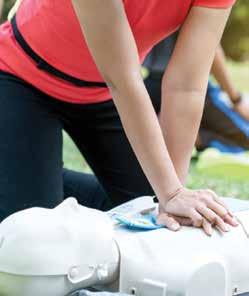
• For American Heart Association CPR classes, start at cpr.heart.org and enter your ZIP code.
• For American Red Cross classes, go to redcross.org/take-a-class/cpr.
• For Seattle Children’s ‘CPR and First Aid for Babysitters’ course, go to seattlechildrens.org/classes. This course includes a 90-minute online class plus an in-person skills check.
Until you can take an in-person class, you can learn hands-only CPR by watching a short American Heart Association video, linked in the QR code below. This method is for use on teens and adults, and it can buy time until professional help arrives.
Seattle Children’s now offers telemedicine for some urgent care appointments. Patients can see, hear and talk with a Seattle Children’s urgent care provider through a computer, phone or other digital device with an internet connection. For these online appointments, patients must be present in Washington state during the time of their visit. They must also be accompanied by a legal guardian. Seattle Children’s Virtual Urgent Care is offered 7 days a week, including holidays. Hours are Monday through Friday from 1 to 9 p.m., and Saturday and Sunday from 11 a.m. to 7 p.m. The QR code below leads to a page that explains which symptoms and conditions can be evaluated through a virtual urgent care appointment and provides other information about this new service.

To be sure that medicines are both safe and effective, it’s crucial to follow dosing and safety rules.
• Always read the instructions on the medicine label and follow them carefully, including those relating to age and weight.
• For liquid medicines, use the measuring device that came with the medicine. Never use a household spoon to measure medicine.
• Keep medicines in their original containers with child-safety caps, but don’t trust these caps to keep a child from opening them.
• Keep all medicines out of sight, up high and out of reach of children. A locked cabinet is safest.
• Be prepared for poisoning emergencies by saving the National Poison Center help line in all your phones: 1-800-222-1222.
• Record when you’ve given a dose and how much you give. This serves as a reminder to yourself and ensures a safe ‘hand-off’ to other caregivers.

• Cold medicines often contain more than one type of medication. Always check the list of active ingredients to ensure you don’t give medicine for fever or pain if you already gave a cold medicine that contains a fever or pain medicine. When possible, it’s best to give just one medicine at a time.
• Always ask your child’s doctor or other healthcare provider if you have any questions.
• Teach your child to take medicine only when it’s given to them by a trusted adult.
• Never call medicine ‘candy’ to entice a child to take it. This is confusing and may cause a child to search for it and sneak it.
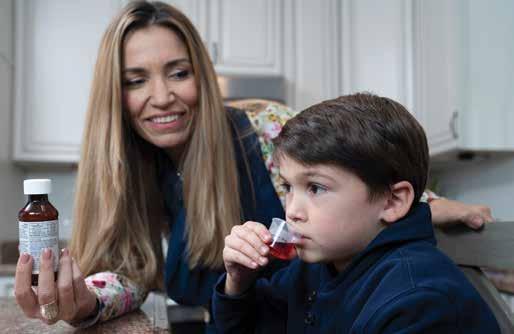
• Call the National Poison Center right away if you think your child might have gotten into a medicine or vitamin.
• Properly dispose of medicine when it’s expired or you no longer need it. For details on how and where to do this, visit takebackyourmeds.org.
And of course, be sure that all those who care for your child — including babysitters and grandparents — follow these safety guidelines.
Please check our website for the latest information. Scholarships are available. If you would like to ask about a scholarship, use the contact information for the class you’re interested in to connect with the registrar.
Autism 101
Watch the lecture, in English or Spanish, at seattlechildrens.org/autism101.
Conversations About Autism
Learn more or view past sessions at seattlechildrens.org/ conversationsaboutautism.
Babysafe
Learn more, view dates and register at seattlechildrens.org/classes.
Finding Mental Health Care in Washington State: A Class on Where to Start
This class is available in English and Spanish. Learn more, view dates and register at seattlechildrens.org/classes.
Legal Transitions to Adulthood Class
Learn more, view dates and register at seattlechildrens.org/classes.
Youth Mental Health First Aid
Learn more, view dates and register at seattlechildrens.org/classes.
Better Babysitters
Learn more, view dates and register at seattlechildrens.org/classes.
CPR and First Aid for Babysitters
Learn more, view dates and register at seattlechildrens.org/classes.
The Chat Workshop Series (Is Puberty Weird?; Body Basics; More Body Basics; Crushes, Consent, and Other Conversations; Our Sexual Selves)
Learn more, view dates and register at seattlechildrens.org/classes. See a trailer for The Chat at greatconversations.com.
Sibshops for Siblings of Children with Special Health and Developmental Needs
Learn more, view dates and register at seattlechildrens.org/classes.
Free Online Mindfulness Groups for Parents and Caregivers
Join a culturally relevant mindfulness and compassion session by phone or with Zoom. Sessions are offered for Black parents, parents of a child with special needs, Spanishspeaking parents, as well as any other parents or caregivers. Take part in activities and mindfulness practices led by parents for parents, and share strategies to cope with challenges. Learn more and view dates and times at seattlechildrens.org/clinics/odessa-brown/ community-programs/mindfulness-program.
Bellevue Clinic Health and Safety Fair
June 24, 10 a.m. to 1 p.m. Children ages 1 to 18 can be fit for a free life jacket or bike helmet. Learn about other health and injury-prevention topics, including child-passenger safety. Learn more at seattlechildrens.org/classes.
Free Car-Seat Checks:

April 22 and May 20 in Seattle Tuesdays in Bellevue
Learn how to safely secure your child in the car. Child-passenger safety experts will check your child in a car seat, booster seat or the seat belt and answer any questions you may have. Car-seat checks are by appointment only. Learn more and register for an appointment at seattlechildrens.org/carseatchecks.
Free Virtual Car-Seat Checks
King County Certified Child-Passenger Safety Technicians are offering free virtual car-seat check appointments via video-chat platforms. For more information, email Laura Miccile at laura.miccile@kingcounty.gov or call 206-477-8664.
South County Fire and Safe Kids Snohomish County offer free virtual car-seat classes. Registration is required. Visit southsnofire.org/ education/child-passenger-safety.
About Good Growing
Heather Cooper is the Editor of Good Growing, which is produced four times a year by the Marketing Communications Department of Seattle Children’s. You can find Good Growing in the January, April, July and October issues of ParentMap and on our website seattlechildrens.org. For permission to reprint articles for noncommercial purposes or to receive Good Growing in an alternate format, call (206) 987-5323. The inclusion of any resource or website does not imply endorsement. Your child’s needs are unique. Before you act or rely upon information, please talk with your child’s healthcare provider.
© 2023 Seattle Children’s, Seattle, Wash.
SEATTLE CHILDREN’S HOSPITAL
Regional Clinic Locations
Bellevue
Everett
Federal Way
Olympia
Tri-Cities
Wenatchee
Primary Care Clinic
Odessa Brown Children’s Clinic
Hospital Numbers
(206) 987-2000
(866) 987-2000 (Toll-free)
Online Resources
Visit seattlechildrens.org for:
Child health advice
Good Growing newsletter
Doctor Finder
On the Pulse and The Autism Blog
Medical condition information
Health and safety information
Ways to help Seattle Children’s Research Institute information
Find us online

Support to uplift women, men, and families in every way possible, focusing on mind, body and soul



Jasmine McCarthy, LMHCA, provides counseling for kids ages 5 years and up, as well as adults of all ages, and family counseling. Jasmine offers her services online via telehealth throughout Washington state. Jasmine is also a yoga instructor and is available for one-on-one yoga therapy. Incredible Years Parenting Program
• Evidence-based parenting classes offered online in group settings or in family’s home
Allergy

a full treatment plan for managing your allergies/asthma, so you can get back to enjoying life. Locations in Tacoma and throughout the South Sound.

Appointments available immediately! Knock Out Allergies/Asthma

McKinley’s Story PrimaryCare fortheWholeFamily 7SnohomishCountylocations Adult&childwellchecks·Developmentalmilestonestracking Immunizations·Sportsphysicals·Mentalhealthsupport wwmedgroup.com/parent-map LocallyOwned Acceptingnewpatientsfor:


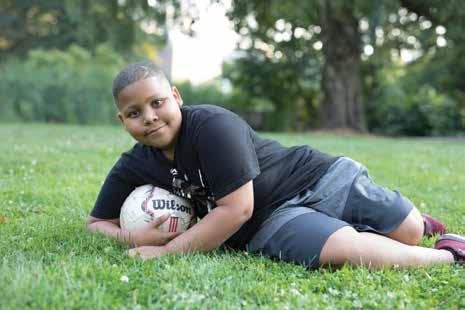


Make
When you purchase a Keep Kids Safe license plate, you help keep children of all ages healthy and safe.
Ming-Ming Tung-Edelman was a teenager when she immigrated to the United States from her native Taiwan. In her single suitcase, she carried with her an exquisitely and lovingly tailored turquoise-colored chiffon dress that her grandmother had made for her.
up, and she made me realize that women with tools and skills can become selfsufficient,” Tung-Edelman explains.
Tung-Edelman was nominated as a 2023 ParentMap Superhero by Citizen University (citizenuniversity.us) CEO and cofounder Eric Liu (parentmap.com/liu), whose powerful civic evangelism stems from his own experience growing up in America as the son of immigrants.

“Being a second-generation American has defined my worldview. It has given me a lifelong sense that every opportunity comes with obligation — to be useful, to contribute, to make all the striving and sacrifice worth it. It has also made me want to push my country to live up to the promises of opportunity and justice that drew people like my parents here,” says Liu. “The first — and only — person who came to mind is Ming-Ming Tung-Edelman, who has created the Refugee Artisan Initiative and made it possible for so many refugee families to be assets and contributors to the culture of our communities.”
More than 30 years after arriving in America — and after a successful 25-year career as a pharmacist — Tung-Edelman drew on her immigrant experience to found the Refugee Artisan Initiative (RAI; refugeesarts.org), an organization dedicated to developing, employing and fostering the creative talents of refugee and immigrant women.
“I started RAI out of my own desire to connect with women from around the world, to learn about where they are coming from and what I can do to contribute to them getting their start in America,” she says.
Noting that refugee and immigrant women have the highest unemployment rate in the country, at 60 percent, Tung-Edelman was motivated to create a program that would focus on nurturing this population to ensure these women have a fair chance to succeed here in America. Her chief inspiration for this second career act, she says, is her grandmother, who worked as a home-based seamstress to support her family in Taiwan.
“I started Refugee Artisan Initiative based on a combination of my love of fashion and compassion. During my immigrant journey, I always found that something was missing. That piece was connecting with my homeland. My grandmother made all of my clothes for me when I was growing
The search for this missing piece led Tung-Edelman to became a student at the University of Washington in its fashion certificate program, where she befriended one of her instructors, Camille Steen, who was also teaching refugee women how to sew.
“There it was, the ‘Aha!’ moment for me,” Tung-Edelman recalls. Knowing that refugee women experience significant barriers to employment, and then learning in her fashion program that more than 80 percent of textiles get disposed of in landfills, Tung-Edelman had an epiphany: “Why not combine the two and create jobs?”
Thus, RAI was founded in 2017, with an inspiring mission to partner with refugee and immigrant women to ensure their prosperous transition in the United States through skills training and assistance starting their own microbusinesses.
What motivates you most in your life and work?
Tung-Edelman: Every day, I wake up and I feel a deep sense of purpose. These are women who are wanting to work, who want to use their skills, so I think, what can I do to continue that pathway for them to become self-sufficient? That is really what motivates me.
What are some of the successes RAI has had in securing employment for program participants?
We pretty much made lemonade from lemons during COVID. In the middle of
March 2020, when everyone was worried about where to find masks, we already had a stash of Amazon returned bedsheets that were 100 percent cotton. As a pharmacist, I just realized that we needed to make as many masks as we could. My firstever GoFundMe campaign was to get masks made for health-care workers and keep our women employed, working at home, being safe. We made over 80,000 masks.
In the beginning we had three, then six women. This year, we’ll have 25 women from six different countries in the program. The majority are from Afghanistan. They may not know how to speak English. They may have five, six children at home. They may not know how to drive. They need home-based work, just like my Grandma.
When the women first come in, they are so shy. Literally just weeks off the plane, and they are scared and they don’t know anybody. And when they come in and hear the sewing machine, they hear other women speak their same language. Sewing is their universal language. It is a safe place for them.
What is one thing you would like to change about our society? I want our society to realize we are so focused on deficits. When I came here, I didn’t speak English very well, and my mother was having a hard time finding work. I just realized that there must be a way to focus on the strengths these women already come with. If sewing is what they have, and that is something they already know, why can’t we create a pathway for that?
It is really a forgotten population. When they come, they have 90 days to be self-sufficient. Their husband has to find work right away, the kids go to school. And there is a huge mental crisis in that population of isolated women who don’t know what to do. They feel they’re worthless. I don’t want them to feel they’re worthless. They’ve come so far. Many have escaped the Taliban! These women have a lot of resilience. I just want to create a place and purpose for them.
If we don’t give these women a home, and an opportunity to be useful and self-sufficient, it is just [exacerbating] a cycle of isolation and mental health. They want to be as useful as all of us — they just don’t know how. To me, that is not acceptable.
Who are some of your partners in this work?
We have some wonderful partners, including Starbucks. We take all of their coffee bags after they roast the coffee, and our women turn them into burlap bags. Starbucks purchases the bags back for their employee store. To me, that is true service to our circular economy, when you can divert this material that would otherwise wind up in landfill and turn it into something, and in the process, create jobs and help the company divert waste.
What do you wish you would have learned sooner?
That it is okay to be bold and bring your ideas. It took me many years, but at least taking that first step I consider a success, rather than not taking the step at all.
What can readers do to support the work of your organization?

We have a waiting list of close to 70 women who want to join the program. So, we need to have more staff to be able to continue to provide the care and provide training. Donate to our organization to help our cause … to assist these women to overcome whatever barrier they face to start their business — either buying a sewing machine or being able to afford their business license.
Sewing allows them to earn their first paycheck and more. Some are able to buy their first car for their husband to start his own Uber business. We have two women who have been here almost five years and now feel safe enough to put down a down payment for their first home. Those are the American dreams. I am here as a messenger to continue the program and make sure that more women can be served, more microbusinesses can be created. ■
— Patty Lindley
short of spectacular in terms of helping families do things like pay for child care, make ends meet and put food on the table. It also helps spark our businesses, because those funds are immediately invested back into our economy,” says Rowe-Finkbeiner.
Rep. Thai immigrated to Washington state with her family as a Vietnamese refugee when she was 15, and she has the distinction of being the first refugee to be elected to the Washington State House of Representatives. She is a passionate education advocate who is committed to ensuring equity and access for all.
What will the Working Families Tax Credit do for families, and how many people have already qualified for it?
Washington made history in 2021 when the state Legislature passed and funded the Working Families Tax Credit (workingfamiliescredit.wa.gov), a firstof-its-kind policy for the state, designed to return millions of dollars back into the pockets of tax-paying families.
Grassroots advocacy organization MomsRising (momsrising.org) was a key coalition partner in supporting this legislation. Kristin Rowe-Finkbeiner,
executive director, CEO and cofounder of MomsRising, was honored as a 2008 ParentMap Superhero (parentmap.com/krf), and she has nominated Washington Rep. My-Linh Thai for her work and persistence in getting this important piece of legislation across the finish line.
“MomsRising thanks Rep. My-Linh Thai for her extraordinary work lifting moms, dads, kids, families in Washington state with the Working Families Tax Credit, which is nothing
Rep. Thai: This piece of legislation has been sitting in Washington state for close to 15 years, and it couldn’t be moved. Our state is the first in the nation with no income tax to be able to push out this tax credit. It was implemented Feb. 1 of this year. More than 400,000 households will be eligible to receive up to $1,200 per year starting in February 2023, and we already have had more than 60,000 individuals apply for it.
How do you apply? Should everyone apply? Rep. Thai: We make the process so easy for people. Visit the Washington State Department of Revenue website (workingfamiliescredit.wa.gov), where they have step-by-step directions for applying. Free assistance is available to help. If you speak Spanish and Mandarin, they have staff who will speak Spanish and Mandarin to help answer all of your questions.
Rowe-Finkbeiner: One thing we know from studies is that when we give families things like the Working Families Tax Credit, that money is immediately spent in the economy. And when the money is spent, it stimulates the economy: It helps local businesses; it helps families pay for things like child care; it keeps people in the labor force.
Kristin, what other initiatives and issues are priorities right now for MomsRising? Rowe-Finkbeiner: I’m so excited in this moment to share that despite what is on the front pages of papers, we’re still gaining momentum for women, children, moms, dads and caregivers. We just came out of December, when we won, after fighting for decades, the Pregnant Workers Fairness Act; we also won the Pump for Working Mothers Act. We won a 30 percent increase in Child Care Development Block Grant funding — that’s $8 billion, with a b. We won one year of postpartum coverage for all birthing people in the country. We also won one year of continuous healthcare coverage for all people 19 and younger. There are so many wins!
What happens when we have democracy? What happens when we’re engaged? Well, when we are all engaged, we all win. And so, looking forward, we’re still looking for that access to universal child care in pre-K. We can make that happen. We need paid family medical leave for every single person, no matter where they work or live in the country. Washington state has paid family medical leave, and that’s spectacular. But still, the majority of people in America don’t. So, we’re fighting for that. We’re fighting also for youth and family justice. We’re fighting for immigration policy reform. We’re fighting for maternal justice. Yes, we still need more maternal health care. We’re fighting for so many things.
We can fix these things, we can do better. And when we do better, we all do
better. So, it’s an amazing time in history where we’ve seen a movement growing, expanding — not just with MomsRising, but multiple organizations across the country rising together. And we’re pushing, pushing, pushing these policies forward, gaining momentum. And we expect to see transformational policy change in the next three to four years. I’m going to bet on it.
Rep. Thai: When we come together and work together, nothing is impossible. I think it really speaks to the fundamental character of being a mom. We look not only at the short-term vision for how we build capacity and possibility for our children, for our family, for our community, but definitely at the long-term vision for our children, family and community. When we join hands and we work together …
Rowe-Finkbeiner: ... the impossible becomes possible.
Rep. Thai: Exactly.
Rowe-Finkbeiner: I’ve seen it so many times. Plenty of people have a lot of cynicism about being engaged in politics. But let me tell you: It might not happen the next day. You know, it’s not like you make one call and you change the world, but it does over time change. Just like the Working Families Tax Credit. That took a long time to get through. And it is making such a big difference.
What is your most strongly held belief?
Rep. Thai: Kindness rules the day.
Rowe-Finkbeiner: We all do better when we all do better.
What is one small action readers can take to make a positive impact?
Rowe-Finkbeiner: Make sure you vote, make sure you research who you are voting for. Don’t just vote for the president, don’t just vote for Congress. Vote at the
state legislative, the county and the city level. This is really important. If you don’t know who you are voting for, Google. You can find out all kinds of fabulous things about amazing leaders, and then vote! And if you’re feeling like that’s not enough to do, you can get five friends to vote. That’s not enough? Get 10, 20, 100? That’s good: You can bring 100 friends to vote with you.
Rep. Thai: Talk to your next-door neighbors. We are so busy with our daily lives, and we are inundated with our daily worries, but take that time and visit your neighbors. Because, without that relationship, when we need to talk about difficult topics, we don’t have any basis or foundation to truly engage and learn from each other.
If you could have any superpower, what would it be?
Rep. Thai: If I have to pick one, it’s probably the power to deeply listen to others. Politicians are expected and trained to talk, but I really want to be able to deeply listen.
Rowe-Finkbeiner: Here’s a superpower that I bet we both want, which is equity and equality for everyone. Everyone. “Hi, let’s get rid of discrimination.” Yes, please, I would like that superpower.
What is your best advice for today’s parents who want to raise and support their kids to achieve big ambitions? Rep. Thai: Listen to them. They know.
Rowe-Finkbeiner: The other one is to think about what big ambitions means. People’s definition of big ambition is changing right now, and so we need to listen to what is healthy, not just ambitious. We don’t need to be pushing people incredibly hard all the time, in an “ambitious” way. So, it’s the importance of listening and defining ambition with kids as opposed to for kids. That’s huge. ■
— Patty Lindley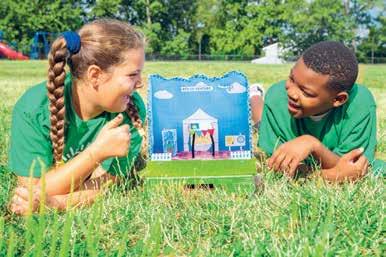











AGES
SWIMMING

TENNIS
VANAPALOOZA
FIELD TRIPS
JR. COUNSELORS

JR. LIFEGUARDS
PRESCHOOL

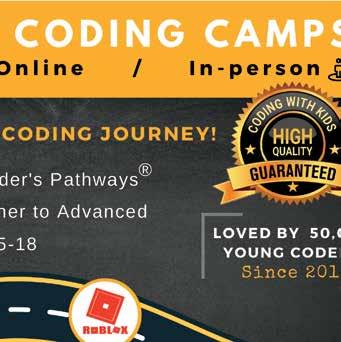
SAMENA.COM

ACTIVE + ENGAGED ALL SUMMER LONG

SPLASH INTO SUMMER
Water fun fills our days at Samena! Have a blast playing, swimming, and making new friends. Campers play indoor and outdoor active games, play on our playground, and engage in crafts or small group games based on the theme of the week.
425.746.1160

Check out many more happenings online at parentmap.com/calendar.
Longer days and warming temps are putting a real spring in our step! All the amazing flowers are the colorful sprinkles on top of the season. Amid Easter, Passover and Earth Day activities, the aforementioned flowers and some expert insight on teens, your April is positively blooming with fabulous family fun. Go forth in spring splendor, friends!
� Get hoppin’ on Easter fun by visiting Thomasson Family Farm’s Bunny Patch Book a visit for a low-drama kids’ egg hunt, farm and playground activities, and the chance to visit the resident critters. Optional Easter Bunny photos will be available, too. The Bunny Patch is open March 29–April 2 and April 5–8. $10–$14; ages 2 and younger free.
parentmap.com/bunny-patch
� Pierce County’s lovely Daffodil Festival launches us into a month filled with gorgeous blooms. The four Daffodil Parades, with floats, marching bands and Daffodil Princesses, progress through four communities, all on Saturday, April 1.

Join the fun at 10:15 a.m. in Tacoma; 12:45 p.m. in Puyallup; 2:30 p.m. in Sumner; and 5 p.m. in Orting. Free. parentmap.com/daffodils

� Speaking of April flowers, scoot north to the Skagit Valley to marvel at the gorgeous fields of tulips alive with color. Some new players have entered the tulip scene, and some places will even allow families to bring their furry friends along. Mother Nature determines the blooming schedule, but the festival runs April 1–30. parentmap.com/tulip-festival
� Can you have too many flowers surrounding you? Decidedly no. Wander among the cherry
blossoms on the University of Washington’s Seattle campus. Head to the Quad and perchance a gust of spring wind will create a snowfall of pale pink petals around you — early April is typically your best bet on timing. parentmap.com/ cherry-blossoms
� Just follow the preschoolers to experience this nirvana of the tot set. Yep, the “Paw Patrol” crew sails into town for a grand pirate adventure, with live shows taking place at two local venues. Join Ryder, Chase, Marshall and Skye on their quest to save the day; shows are staged Tuesday–Wednesday, April 4–5, at Angel of the Winds Arena in Everett,
and Saturday–Sunday, April 8–9, at the Tacoma Dome. parentmap.com/paw-patrol
� Seattle Children’s Theatre puts its modern spin on the beloved classic “The Wizard of Oz.” A band of new friends sticks together to overcome challenges and support each other in pursuit of their dreams. This kid-friendly version of the tale runs 60 minutes and is recommended for ages 5 and older. April 4–May 21. Tiered ticket pricing starts at $15. parentmap.com/oz
� Celebrate Passover in sweet, sweet style by savoring a six-pack of delightful Passoverthemed cupcakes. These beauties are from the local cupcake whizzes at Trophy Cupcakes and are available for order April 5–15. Passover cupcakes are free of flour, grains, leavening agents and nuts, though they’re not officially kosher. parentmap.com/ passover-cupcakes
� All aboard for free mini train rides around the park! April 8 and 22 (Saturdays) are the first

Port Orchard parentmap.com/kitsap-live
April 14–16

Seattle Center
parentmap.com/blossom-fest
April 18
ParentEd Talks: The Habits of Highly Effective Adolescents
Online parentmap.com/live
two dates of the season for Kitsap Live Steamers mini train rides, welcoming railroad fans of all ages to fun train rides at Port Orchard’s South Kitsap Regional Park. Rides continue the second and fourth Saturdays of the month, plus some holidays, through October. parentmap.com/kitsap-live
� Families that love getting a jump on summer fair fun and those that prefer a chill fair experience know that the Washington State Spring Fair is a sure winner. Mark your calendar for two spring weekends of tasty fair food, farm animals and rides, plus awesome entertainment, including DockDogs, racing pigs, Motorsport Mayhem and The Hip Hop Juggler. Fair dates this year are April 13–16 and 20–23. Tickets $10–$15 per person; ages 5 and younger enter free; rides and select shows extra. Pro tip: All youths ages 18 and younger enter free on Thursdays, April 13 and 20. parentmap.com/spring-fair
discover all of the fascinating critters that live in and around an urban pond, and learn how to protect them. Saturday, April 22, 9–11 a.m. Preregister for this nature activity designed for kids and their caregivers, $10. parentmap.com/pond
� Everything’s coming up flowers in April! Visit Seattle Center for the annual Seattle Cherry Blossom & Japanese Cultural Festival and partake in food, demos and performances that showcase Japanese and Japanese American cultural traditions. Friday–Sunday, April 14–16. Free. parentmap.com/ blossom-fest
� Reserve an hour to join ParentMap to discover the habits of highly effective adolescents with teen whisperers Laura Kastner, Ph.D., and Christine Carter, Ph.D. In our next ParentEd Talks event, these two experts will share science-backed tools and tips for helping teens find motivation. Register and join us Tuesday, April 18 at 2 p.m. parentmap.com/live
� Celebrate Earth Day out in the wild! Free-entrance days to our state and national parks make it easy to gather your crew and head for the hills, the beach, the trees. Our state has so much nature to experience! parentmap.com/free-day
� Dive headlong into pond life, um, figuratively speaking, of course. Join a park naturalist at marvelous Camp Long to
� Earth Day is the perfect day to attend the South Sound Sustainability Expo and gather ideas on living green, plus get hands-on ideas and watch demos for helping our planet. Bring outgrown clothing for the free clothing swap and old electronics to be recycled! Saturday, April 22, 10 a.m.–3 p.m., at University of Washington Tacoma. Free; donations are welcomed. parentmap.com/sustainability
� Kelsey Creek Farm is such a gem, you don’t need a special occasion to visit. But you will want to turn up to watch the resident sheep get their annual spring haircut at the familyfavorite sheep-shearing event. It’s on Saturday, April 29, 11 a.m.–4 p.m. Free; no registration required.
parentmap.com/shearing ■


 By Kerrie McLoughlin
By Kerrie McLoughlin





Maybe you don’t think your teen needs summer camp. But why not send them off for a week or more of summer fun and learning this year? Here are eight great benefits teens experience when they attend summer camp:
1. Learning how to give back. Community service camps offer a great chance for teens to make a difference while also developing skills that will carry them through their lives. Maybe your teen will learn how to pack food for the homeless, teach kids how to read or work on a project that will benefit the community, such as cleaning up a playground or fixing equipment.
2. Making new friends. Some teens attend the same camp or camps every summer and might reunite with the friends they’ve made there, year after year. Campers who are attending for the very first time can hone their social skills by making new friends and getting to know other kids outside of their typical school setting. Being in close proximity for days or weeks helps kids get closer, faster.
3. Learning new things. Whether your teen attends a camp to learn more about horses, adventure, a specific sport or anything else, they have an entire day, week or longer to focus on that one activity and really immerse themselves in it. Your teen might discover a new passion that could be helpful in their education or work life later on.
4. Developing a hobby. When your child is unplugged from the TV, video game console or smartphone, they can really concentrate on developing a hobby. These days, there seems to be a camp for pretty much any interest your kid has.







5. Working as a team. Your teen will be meeting kids and counselors of different ages and from different backgrounds. Learning how to get along and work as a team is a huge life skill that is developed and reinforced at camp. Some camps even have kids do team- and trust-building activities to help them get to know each other.
6. Staying active. Forget sitting around absorbed in “screen time” all day long during the summer! When teens attend camp, they often forget all about tech
amusements and focus on having fun with their friends while going on hikes, boating, swimming and more.




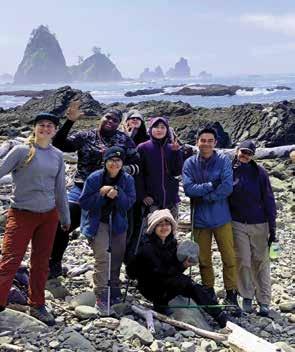
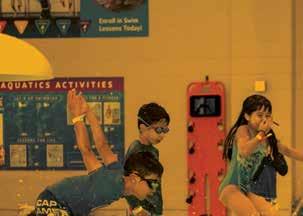







7. Standing on their own. Let’s face it: As our kids get older, they start to grow away from us. They are simply preparing to head out on their own and they are also preparing you for that transition by perhaps being a little distant. Teens are stuck between childhood and adulthood, and it’s a confusing time. Going away to camp for even a short period of time helps foster independence.
8. Appreciating everything. Away from screens (yes, I keep fixating on this one), it’s easier to focus on nature, learning, forming relationships and more. After being away from home and their parents, kids often return with a newfound appreciation for what it takes to be in a family and help out in the running of the household. Your teen will probably come back also appreciating things they once took for granted, such as a full pantry that’s open all day, their comfy bed and privacy!
As for the rest of the summer? Well, your teen can spend plenty of time doing those odd jobs to help pay for camp next year! ■

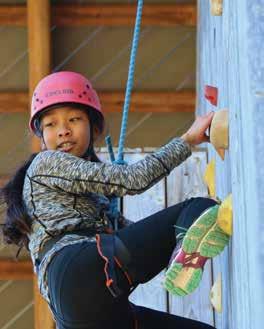


Kerrie McLoughlin is a seasoned homeschooling mom of five who blogs at The Kerrie Show (thekerrieshow.com).








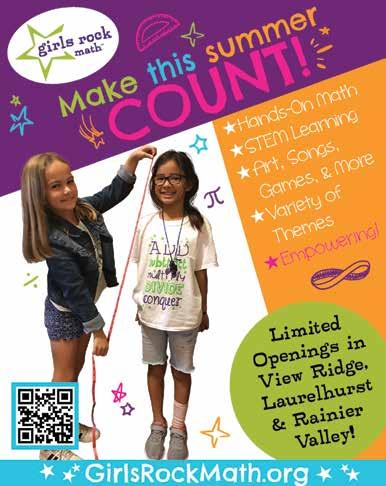





























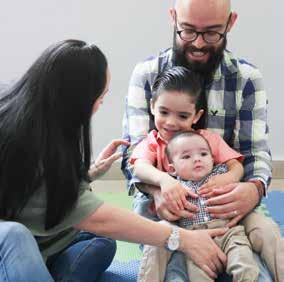









Upstander
Passionate volunteer


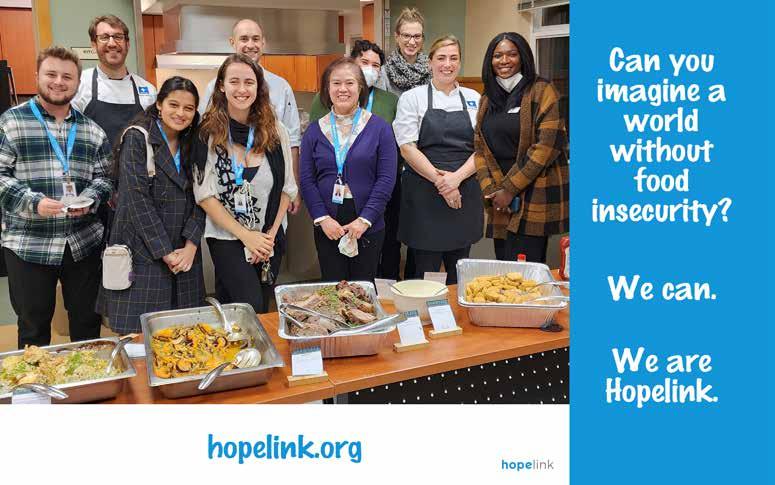
Curiosity is back and more colorful than ever. Get tickets today at pacsci.org






find a compromise. Does dropping them off (or encouraging use of public transportation, now free for all riders ages 18 and younger in Washington) feel like too much? Instead, you could drive them somewhere and wait in the car with a good book (my mom’s go-to move when I was a kid). Some time alone to just sit and read? Sign me up!
Try running these ideas past your kid today and see if it gets them to take out at least one earbud.

Games have come a long way, and choices today go way beyond Chutes and Ladders or Monopoly (yawn). And with such variety, there is something for just about everyone, from straightforward card games to games with so many pieces it takes an advanced degree to set it all up, and complex adventure games that can take hours to complete. Check out these stores for plenty of options, plus a variety of in-person gaming events:
These destinations let them flex their independence
By Kari HansonWhat do teens and tweens always want to do? Hang out in groups with friends — without any pesky parents around. Their desire for freedom sometimes feels like it bumps up against our desire for their safety, but finding a middle ground is key. Here are some ideas for things teens and tweens can do around Seattle to have fun while flexing their independence. And maybe take a little break from screens as well.
Remember, you know your kid best, and every child matures and is ready to handle increasing responsibilities at different ages. If these ideas feel like too much, too soon, there might be a way to
• Mox Boarding House, Seattle and Bellevue (moxboardinghouse.com). Browse for new board games, check out the latest Magic the Gathering cards or come for an epic Dungeons & Dragons adventure. Mox has something for everyone, including a restaurant, where you can sit and chat with your friends over a beer while the kids go all in on a gaming adventure. My kind of place! But be forewarned: Some of the card and gaming events have an entry fee and often run until after 10 p.m.
• Zulu’s Board Game Cafe, Bothell (zulusgames.com). A community-oriented board-game café for all ages, this venue offers a wide variety of board games, card-game tournaments, and even Dungeons & Dragons for young adventurers! This shop’s packed events calendar can keep your gaming teen busy every night of the week. Again, be sure to read all event details, as some have fees and late ending times.
• Tacoma Games, Tacoma (tacoma-games.com). This is a great game shop, filled with a wide selection of board games, card games, role-playing games and supplies for painting miniatures. This store also hosts weekly Magic the Gathering tournaments and events throughout the month; check the calendar for details. While there is no café located onsite, there are many nearby places to grab a meal or snack.
Sometimes even teens and tweens just need to get out there and move. While running around at the park may no longer be appealing, outdoor activity for tweens and teens is still beneficial to their physical and mental health. If your child is less than excited about
continued from page 47
exercise, see if any of these ideas help get them (and their friends) off the couch:

• Ice skating or roller skating. There is no scoring, no winning and no pressure when it comes to skating rinks. And there is something about flying (or flailing) around a rink that brings out the kid in all of us, even the teen-est of teens. Check out this roller skating guide, and don’t forget to tell your kids that roller skating really is cool. If ice skating might be more their thing, check out our guide to local ice rinks (parentmap.com/ice-skating; scroll down past the seasonal pop-up rinks for the permanent ones).
• Driving ranges. This is another laid-back, noncompetitive, no-scores opportunity for kids to get outside and do something fun while being social. No equipment? No problem! Everything you need is provided at the range, so just show up, grab a club and a bucket of golf balls, and start having fun. Interbay Golf Center (premiergc.com/-driving-range) offers 80 covered stalls and 40 heated stalls, allowing you to yell “Fore!” comfortably all year. If your kid is more into mini golf, discover awesome mini-golf spots around Seattle, the Eastside and South Sound at parentmap.com/mini-golf.













Living in (or near) a city like Seattle provides so many opportunities for live events that it is impossible to list them all. From live theater and musical shows to fairs and festivals, there is so much for tweens and teens to experience! And if your teen hasn’t yet signed up for TeenTix (teentix.org), they should do it today. Here are just a few of the venues that welcome the teen crowd:

• The Vera Project, Seattle (theveraproject.org). The Vera Project is an all-ages nonprofit space that has been dedicated to youth arts and music for more than 20 years. Vera hosts live-music shows, and offers classes and workshops in screen printing, live and recorded sound, concert lighting, zine making, DJ-ing and more. Sound amazing? Well, it is!
• The Paramount, Moore and Neptune theaters, Seattle (stgpresents.org). Remember the excitement of attending your first real concert? While these venues don’t necessarily focus on teens, many of their events welcome all ages, and TeenTix makes them super affordable. Any teenager can join this incredible program to get $5 tickets for day-of shows at more than 70 partner organizations. The TeenTix calendar
the history and culture of the Tulalip Tribes
is so packed full of events that it makes any teen’s default complaint that “there’s nothing to do” null and void.





Okay, so technically, arcades mean screen time, but they’re out in the world and social places, so they hardly count! Have your kid grab a few friends and head to a real-life arcade for some old-school video game fun. They might scoff at the graphics, but let’s see them try and get their initials in one of those high score slots. Bonus: Arcades have a natural time limit. When you’re out of quarters, you’re out of quarters. Point your teen toward the following arcades next time they complain about being bored.
• Ice Box Arcade, Seattle (iceboxarcade.com). This great old-school arcade offers video games, pinball machines, a pool table and air hockey (plus a variety of snacks you can purchase). All ages are welcome until 8 p.m., after which it is open to adults (21 and older) only until closing.
• Dorky’s Arcade, Tacoma (dorkysarcade.com). Have you ever played an arcade game in your life? Chances are if you have, you’ll find that game among the huge selection (more than 100!) of classic arcade games and pinball machines here. Dorky’s also sells pizza and sandwiches. All ages are welcome until 9 p.m., after which it’s adults (21 and older) only. Kids coming to Dorky’s Arcade should be at least 7 years old, and kids ages 7–15 must be accompanied by an adult, though kids are welcome to play games on their own (i.e., you don’t have to hover). Check the Facebook page for upcoming events and more info.
• Memory Lane Arcade, Everett Mall (memorylanenw.com). A video game arcade in a mall? What could be more of a tween paradise? While this arcade is not as large as the others, it offers plenty of rainy-day fun. Drop off your crew for some games; then they can head to the food court for lunch. It’s like the 1980s all over again.
Next time your tween or teen complains about being bored, suggest some of these ideas. Or, better yet, just text them the link to this article (parentmap.com/ bored) and let them take the lead in planning their next adventure! ■



Kari Hanson is ParentMap’s associate editor and a mom to two sons.

Toddlers don’t really understand why they need to brush their teeth, no matter what stories we tell them about cavities. But that doesn’t mean you should give up on brushing your toddler’s teeth. Reconciling those two things can be tough, but I have seen many families do it. Here are some tips that will get your children brushing by themselves sooner.

1. Play “copycat.” Since most kids at this age enjoy learning by copying us but want to “do it themselves,” brush together while looking into the mirror. Let your child “brush” their own teeth while you brush yours, copying you in the mirror. They won’t do a thorough job, but it’s a good start and teaches them that they brush. That way, they don’t have to rebel totally against brushing teeth even if they go through periods when they won’t let you brush their teeth. The bottom line: Make it a fun game.
2. Your job is to “check” that no food is hiding. In the beginning, your child will just chew on the toothbrush most of the time, but they will get comfortable with the toothbrush being in their mouth. Then, you can help them finish up. This is the tricky part, because most humans hate having someone else stick things in their mouth.
All children are motivated by a sense of mastery, so let them feel good about their brushing achievement even though at the moment you’re really the one doing it. Over time, they will get better and better.
3. Keep it short! Having someone poke around in your mouth can seem interminable, even to an adult. The idea now is to get your child used to the idea of brushing. Remember, your job is just to “check,” which means a quick swipe over all of the child’s teeth. You can lengthen the amount of brushing time by using songs and timers as your child gets used to it and becomes more cooperative.
4. When you are “checking” (which is really brushing their teeth), make it fun. For instance, you might say you see a giraffe or a tiger in there that you have to catch. Or chase the sugar bugs. Or count their teeth.
5. Sing while you are “checking.” “This is the way we brush our teeth after we eat our dinner” or “The toothbrush in the mouth goes round and round” can be very helpful, because singing increases the fun and reinforces the routine. Maybe most important, it assures the child that the brushing time is limited, because they can count on it ending when the song ends.
6. Use sound to encourage good habits. Prompt your child to say “Teeee” (for the front teeth) and “Ahhhh” (for the back teeth), and to roar like an animal so that their mouth is open wide while brushing. This also makes the whole process more of an exciting game.
7. If your child resists, take turns. Toddlers are beginning to understand “My turn!” so you can say, “Baby’s turn to brush Mommy’s teeth!” and then “Now it’s dolly’s turn!” and “Now it’s Mommy’s turn to brush Baby’s teeth!”
8. For kids who resist, start the brushing task with something fun. Anything that gets your child giggling will make them more amenable to cooperating. For instance:
• Let your child brush the “teeth” of their stuffed animal or doll. • Brush all over the child’s body — their arm, their ear — and ask “Is this where I should brush?”
9. Offer choices to help your kiddos cooperate. To “finish up” brushing their teeth, does your child want their favorite stuffed animal, puppet or doll to help with the brushing as well? (Puppets make it easier for you to hold the toothbrush, but your child may prefer a stuffie or doll.) Hold the toy and let them “finish up” the brushing. Awkward, but it gets the job done.
10. Be sure to read books with your child about toddlers brushing their teeth. When kids read about brushing teeth, the whole process is normalized rather than feeling like a hardship they have to endure.
11. Watch YouTube videos with your child that show toddlers brushing their teeth. Many parents find this motivates kids even better than books, because most toddlers want to mimic other kids.
12. Make brushing teeth a reliable part of your family routine. Experiment until you find the right timing. For instance, try brushing before bath time, when your child is not as tired. Or even during the bath! It may be more awkward for you, but they will be in a more playful and relaxed mood.
13. If your child still resists, get them giggling about toothbrushing to help work out their feelings about it. Do this during the day, at a time when you aren’t actually brushing and your child feels more relaxed. For instance, make a game of letting them brush your teeth to reverse the power dynamic. This can get them giggling, which releases the same pent-up emotions as crying does.
14. Consider skipping the toothpaste. Most dentists say that’s fine at this age, and since most kids don’t like toothpaste, you might experiment to see if that makes your child more receptive to brushing. The other option is to buy a bunch of kids’ toothpaste (Tom’s of Maine brand, for instance, prides itself on more natural ingredients), one after the other, trying them and giving your child choices. Maybe they will love one and that will give them added incentive.

15. Distract and cede control wherever possible. It can be very helpful to let the child hold a different toothbrush (or even one in each of their hands) while you brush their teeth. Let them be in charge of everything you can when it comes to brushing — the toothbrush they choose, the toothpaste (or not), the song, how many times you have to jump up and down before they are done, etc. Many parents say that simultaneously letting the little one brush their teeth while the parents brush them is the best distraction.
If your child resists, don’t get into a power struggle. Just “play” toothbrushing a little bit using the games above so they understand it is still on the agenda. ■
Laura Markham, Ph.D., is the founder of Aha! Parenting (ahaparenting.com).




Working with families to build the skills they need to create the family they want. melissabenaroya.com











Try these pointers today to get the conversation flowing
By Laura Markham, Ph.D.“What did you do in school today?”
“Nothing.”
Parents often ask what they can say to get their child talking. The secret isn’t about what you say. It’s about how you listen.
The most important skill in talking with anyone, including children, is listening. Not answering, not teaching, not lecturing, not fixing things or offering solutions. Not only do your kids not want that from you, but it would get in the way of them coming up with their own solutions. What your child needs from you is your full attention and empathy. That’s what deep listening is. Here’s how to become a brilliant listener.
1. Pay full attention.
This is your time to listen to your child. It’s a gift to both of you. The shopping list and that problem at the office can wait. Your child knows when you’re really listening. They may not show it, but it breaks their heart when you pretend to and don’t. Turn off your cell phone. Really. They will remember for the rest of their life that you turned off the cell phone just to listen to them.
2. Use conversation openers rather than conversation closers.
Conversation openers acknowledge and reflect feelings without judgment or suggestion, rather than shutting down the feelings. They also usually work better than direct questions to help your child feel

comfortable opening up to you. Questions put the other person on the spot and can cause defensiveness, especially when they begin with “why.”
Use conversation openers:
• “You sure sound angry at your brother ...”
• “You seem worried about the field trip today ...”
Avoid conversation closers:
• “You just have to make the effort to get along with your brother!”
• “Don’t be such a baby about the field trip — of course you’re going!”
Avoid asking questions:
• “Why are you so angry at your brother?”
• “Why don’t you want to go on the field trip?”
3. Use words that validate your child’s experience.
You don’t want to say much, just enough to create a sense of safety. Use phrases such as:
• “Oh, no!”
• “No wonder you’re upset.”
• “Nothing seems to be going right for you today.”
• “I’m so sorry I wasn’t there to help.”
• “That must have been so embarrassing [upsetting, frustrating, scary, annoying]!”
• “That would have hurt my feelings, too.”
4. Empathize instead of probe.
“Tell me how you feel” is not an expression of empathy. Empathy is mirroring whatever your child is already showing you.
Saying “You seem sad” or “You’re very quiet tonight,” followed by a warm smile, will
encourage your child to open up more than badgering them with questions.
5. Don’t put your child on the spot. Kids often open up more when we aren’t looking directly at them. Your child may feel more comfortable talking while riding in the car, doing dishes together or walking down the street. Sometimes when we turn the lights out at night, kids pour out their souls to us in the dark.

6. Don’t start by trying to change the feeling or cheer them up. I promise you, empathizing with the bad feeling is the fastest way to help it dissipate. Arguing a child out of a bad feeling just invalidates it, or pushes the feeling under, only to resurface later. That doesn’t mean you magnify or wallow in the negative feeling, just that you acknowledge it and honor your child’s experience. Once they have a chance to notice, accept and maybe express the feeling, they’ll feel ready for “cheering up” in the sense of a change of scenery and topic.
7. Don’t start solving the problem. The point is to let your child get past the upset so that they can begin to think about solutions on their own, not to solve it for them. When your child expresses feelings about something, you’ll want to listen and acknowledge, rather than jumping in with solutions. That means you’ll have to manage your own anxiety about the issue.
8. Close your mouth. You may have to put your hand over your mouth. There are teachable moments, but
kids learn most from the opportunity to hear themselves talk and come to their own conclusions. If you give in to the temptation to lecture, your child will clam up. If you want to let your child know you’re listening, make short sounds like “Mmm ... Huh ... Wow!”
9. Match your reaction with their mood. Your third-grader feeling a bit downcast because his team lost the soccer game doesn’t merit a reaction from you as if someone has died. Conversely, mechanically parroting “It can be hard when your boyfriend splits up with you” is likely to provoke hysterical rage in your 14-year-old. The sweet spot here is to empathize so your child knows you understand what they are feeling, but also to communicate your wordless confidence that this, too, shall pass, and someday life will be good again.
10. Keep the conversation safe for your child by managing your own emotions. When your child shares something with you that makes you anxious, use your pause button to: Stop, drop your anxiety and breathe. Your child needs your help at this moment, not a reprimand. So, for instance, if your child comes home and yells, “I hate that teacher! She yelled at me in front of everyone!” you might well want to respond: “What did you do to make her yell?” or “Kyle, don’t say you hate people!”
But what your child needs to hear is: “Wow! That must have been so embarrassing. No wonder you feel so angry at her!”
If you start feeling responsible (“I could have prevented this!”) or terrified (“I can’t

believe this is happening to my child!”), get a grip and put your feelings aside. This isn’t about you right now, and your upset won’t help. You can process your emotions and reactions later.
11. Remember that all your child’s behavior is communication. Even children who don’t say much want to connect with you. Accept it on their terms. I love this story from Lawrence Cohen, author of “Playful Parenting”:
“I try to take a broad view of what counts as a connection — it isn’t always a deep conversation. It might be a handshake, a hug, a long look in each other’s eyes, a high-five. It might be, as with a young boy named Pete, having his action figure shake hands with my action figure. After Pete did this, I pointed out to his mom, who had described him as unable to connect, how creative he actually was in making contact. He couldn’t handle too much emotional intensity, but he found a way to shake hands with me his way — a playful way.

12. Help your child process emotions with your empathy. Think of your empathy as a mirror you hold up to your child. Your acknowledgment and acceptance of what they are feeling — even those more disturbing emotions like jealousy and anger — help them to accept their own feelings, which is what allows those uncomfortable feelings to resolve. Most of the time, when kids (and adults) feel that their emotions are understood and accepted, the feelings lose their charge and begin to dissipate. We don’t have to act on those feelings, or even to like them, merely to acknowledge their presence.
Repressed feelings, on the other hand, don’t fade away, as feelings do when they’ve been acknowledged. Repressed feelings are trapped and looking for a way out. Because they aren’t under conscious control, they pop out in unmodulated ways, such as when a preschooler socks her sister, a 7-year-old has nightmares, or an 11-year-old develops a nervous tic.







Accepting feelings and reflecting them does not mean you agree with them or endorse them. You’re showing your child that you understand — nothing more and nothing less. And if you’ve ever felt understood, you know just how great a gift this is. ■


Laura Markham, Ph.D., is the founder of Aha! Parenting and the author of “Peaceful Parent, Happy Kids,” “Peaceful Parent, Happy Siblings” and “Peaceful Parent, Happy Kids Workbook.” This article was originally published on the Aha! Parenting website (ahaparenting.com).
